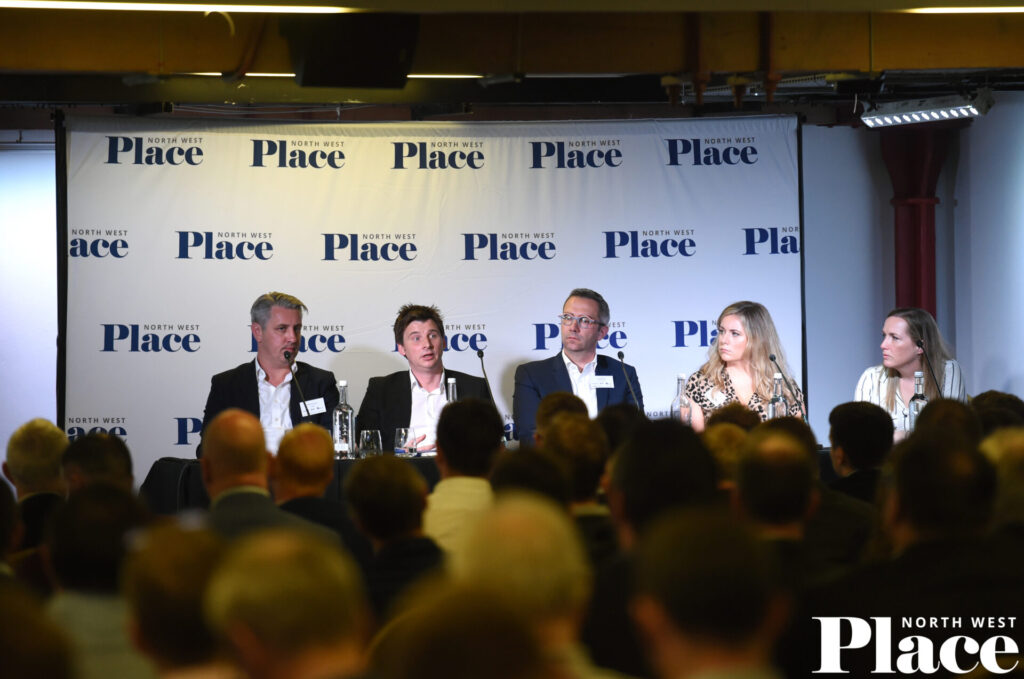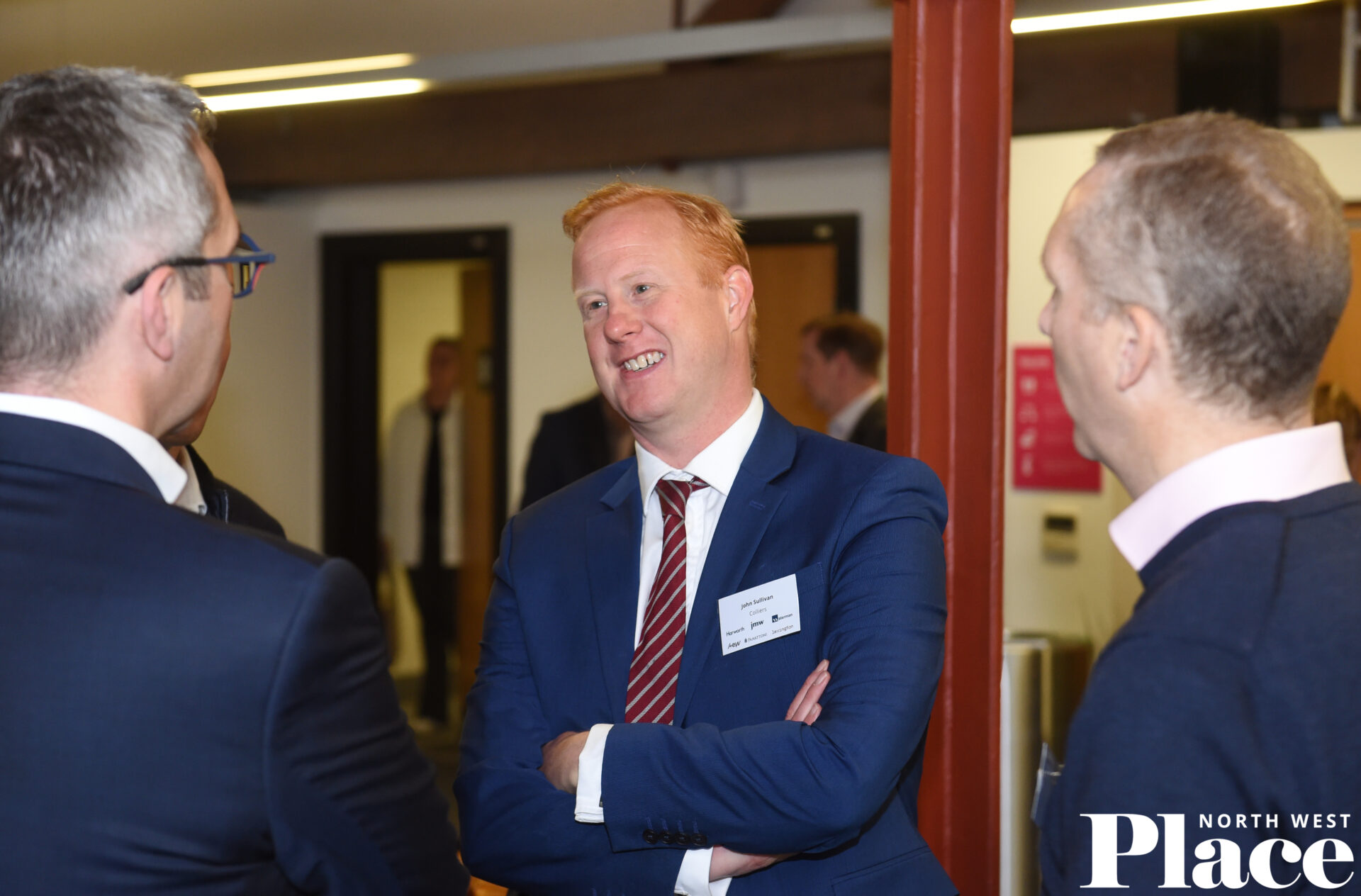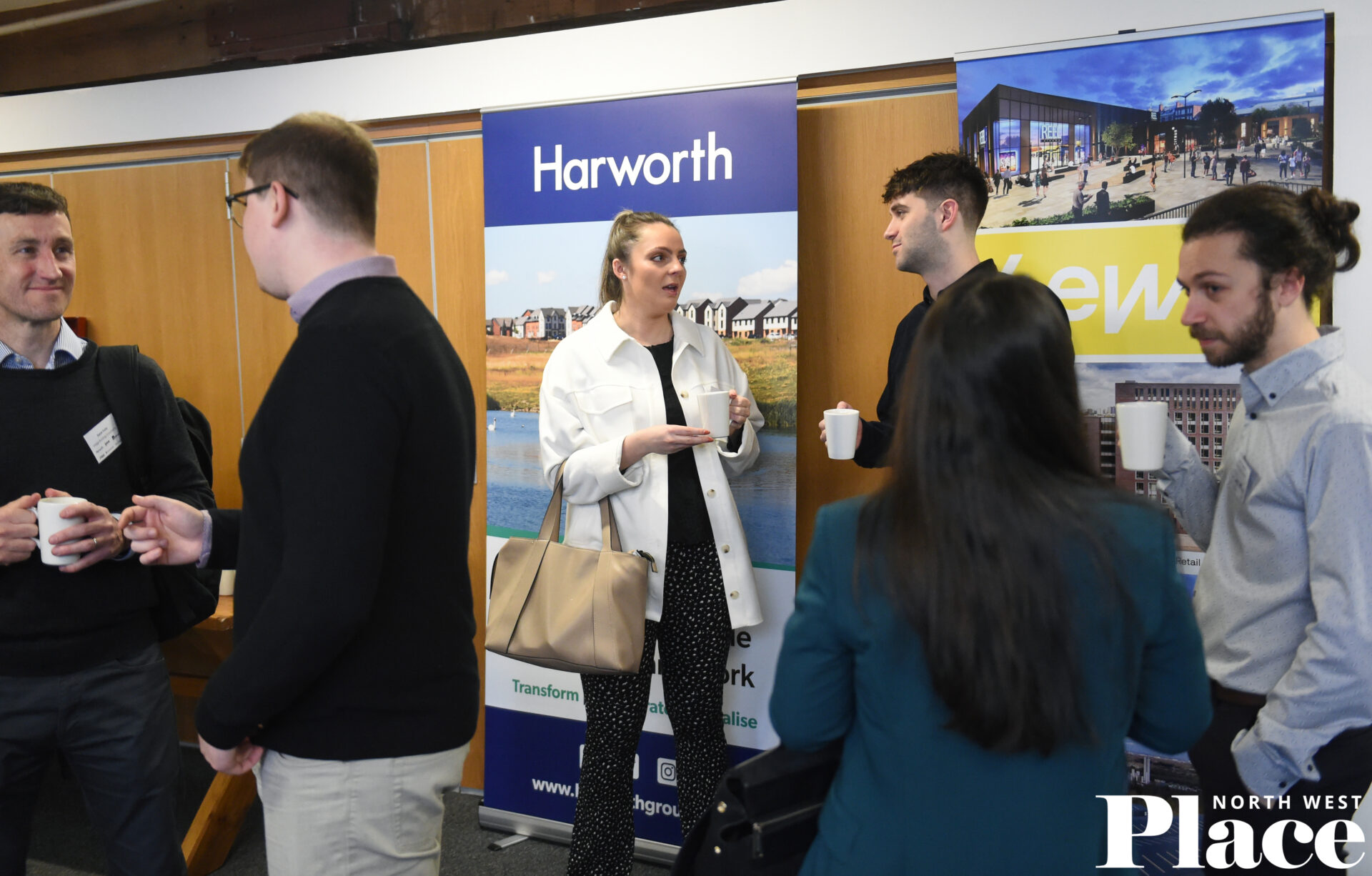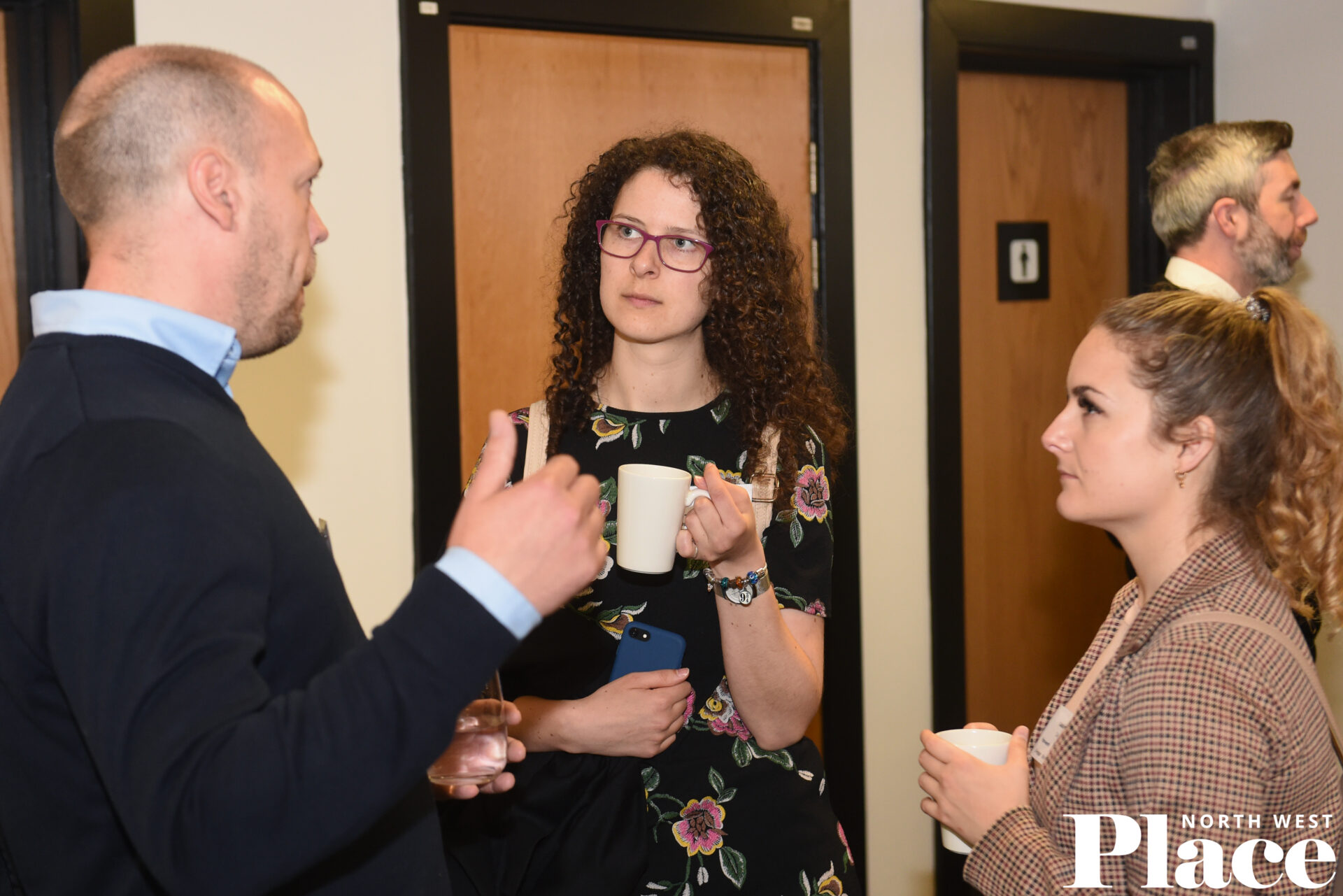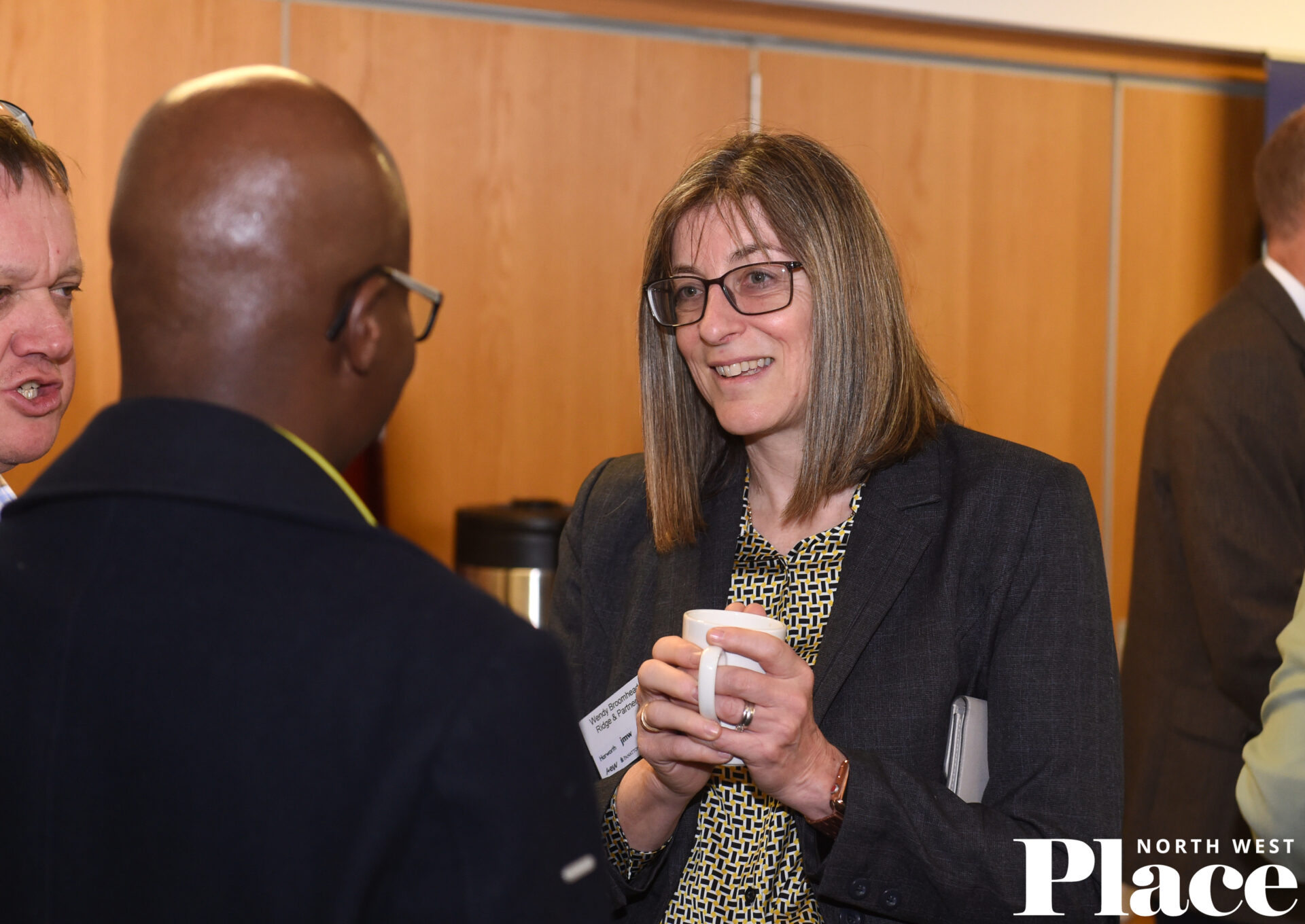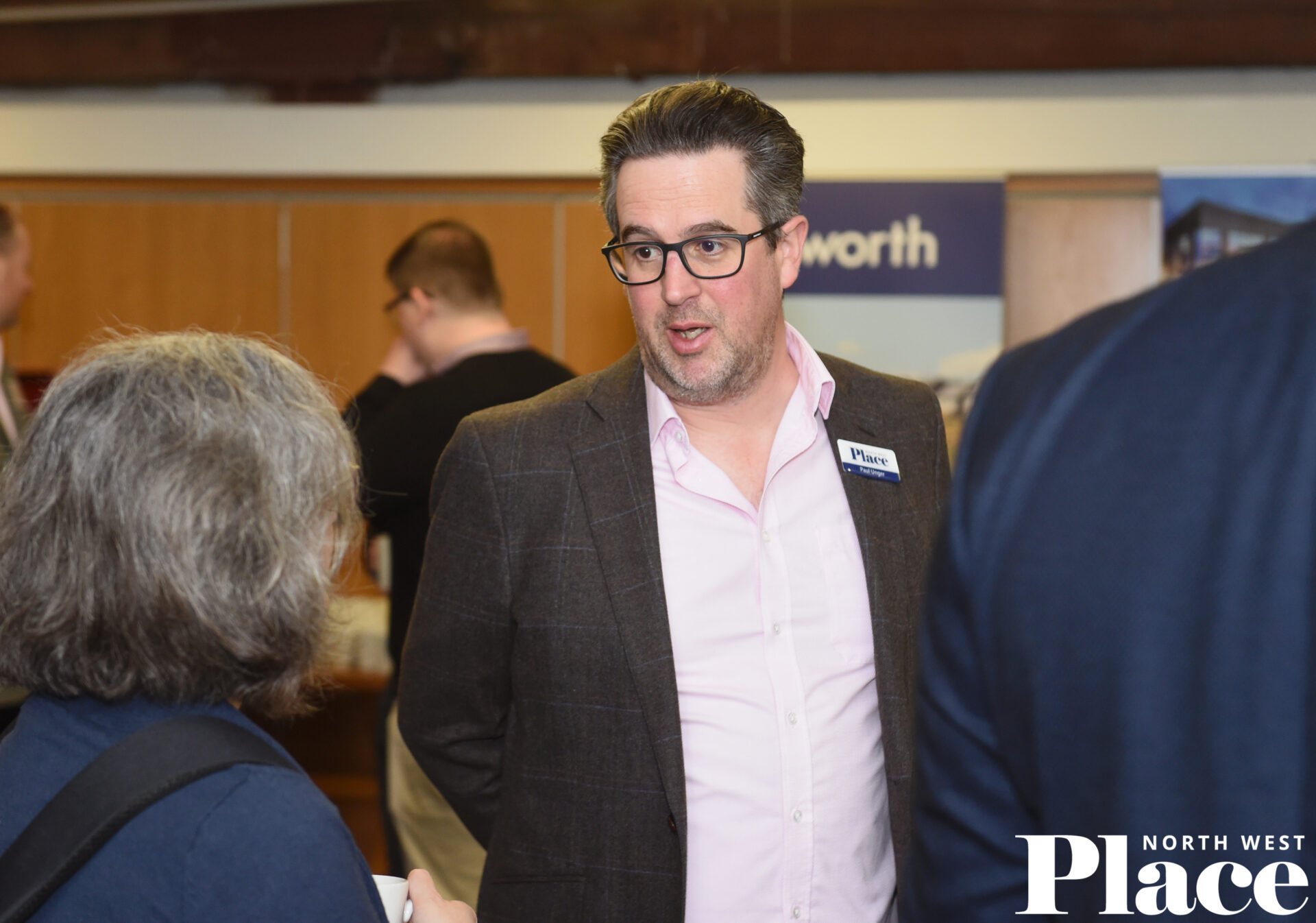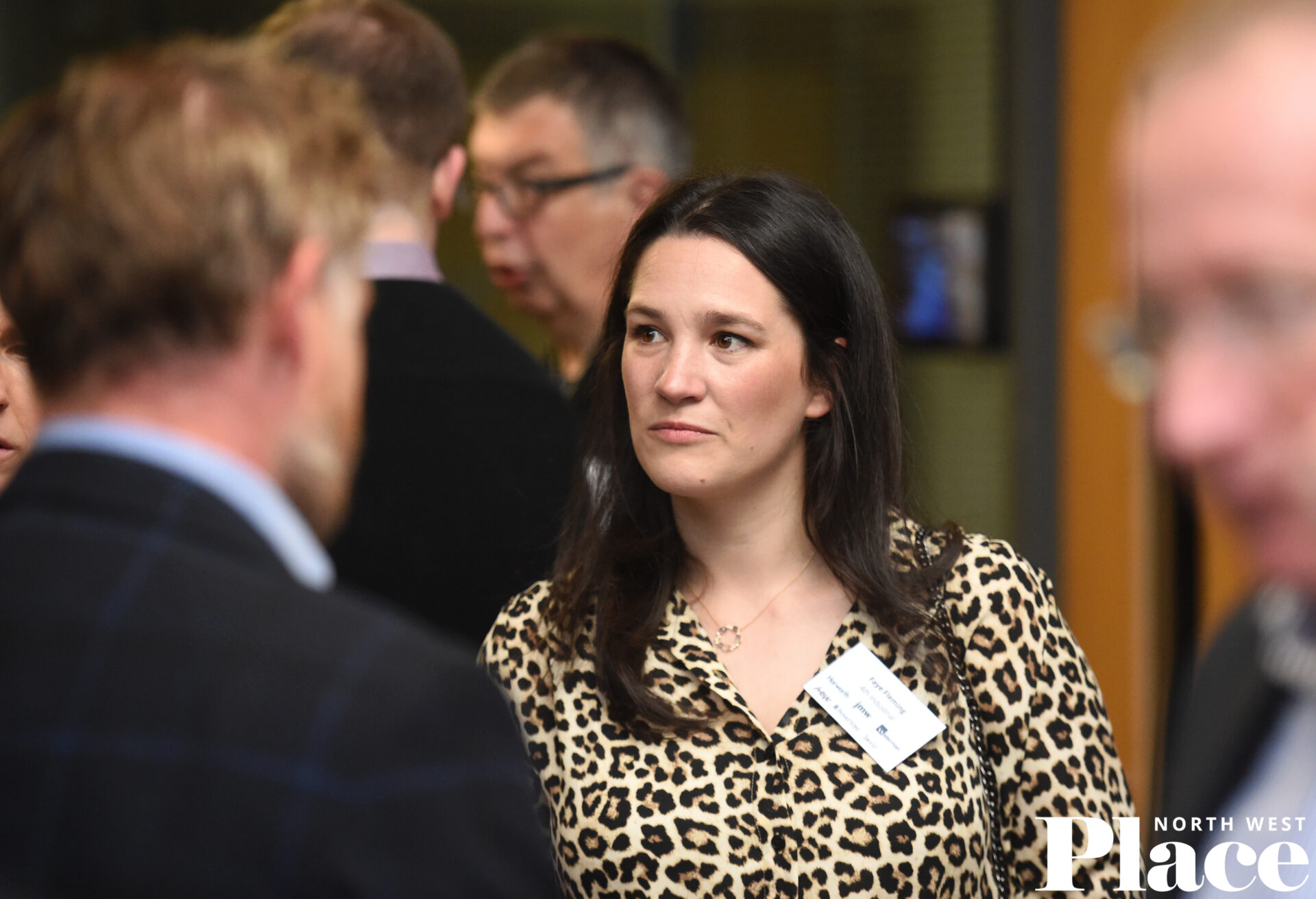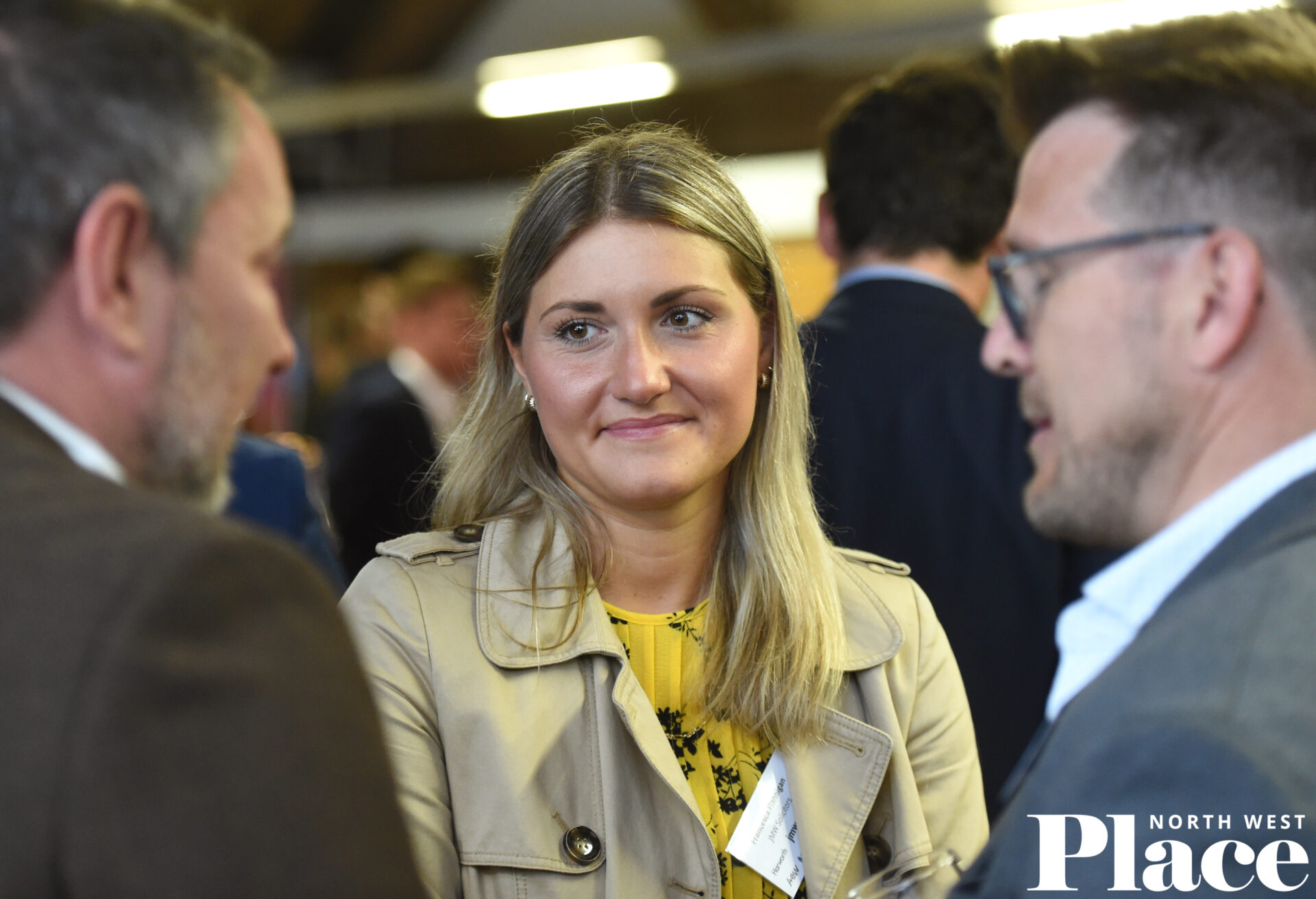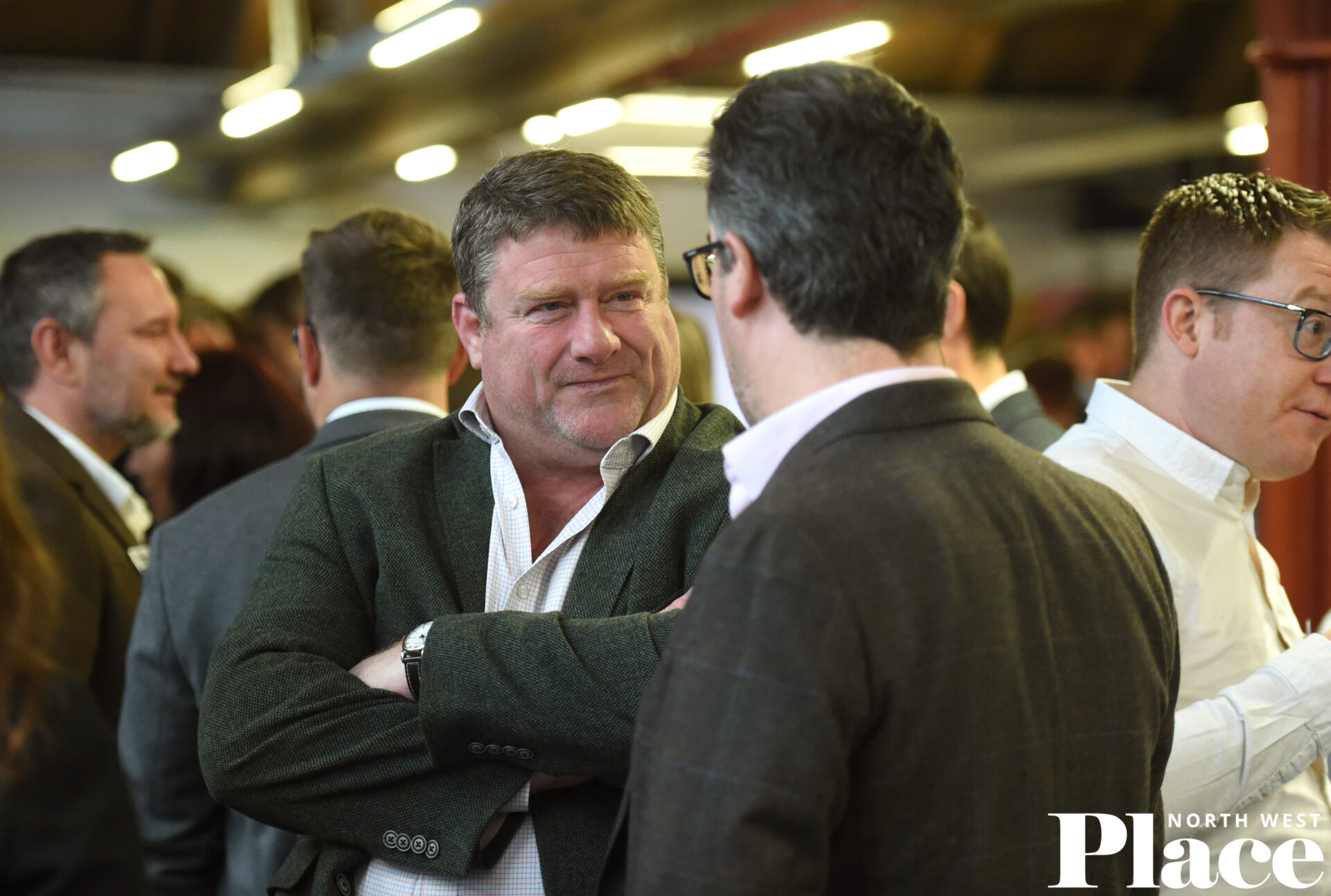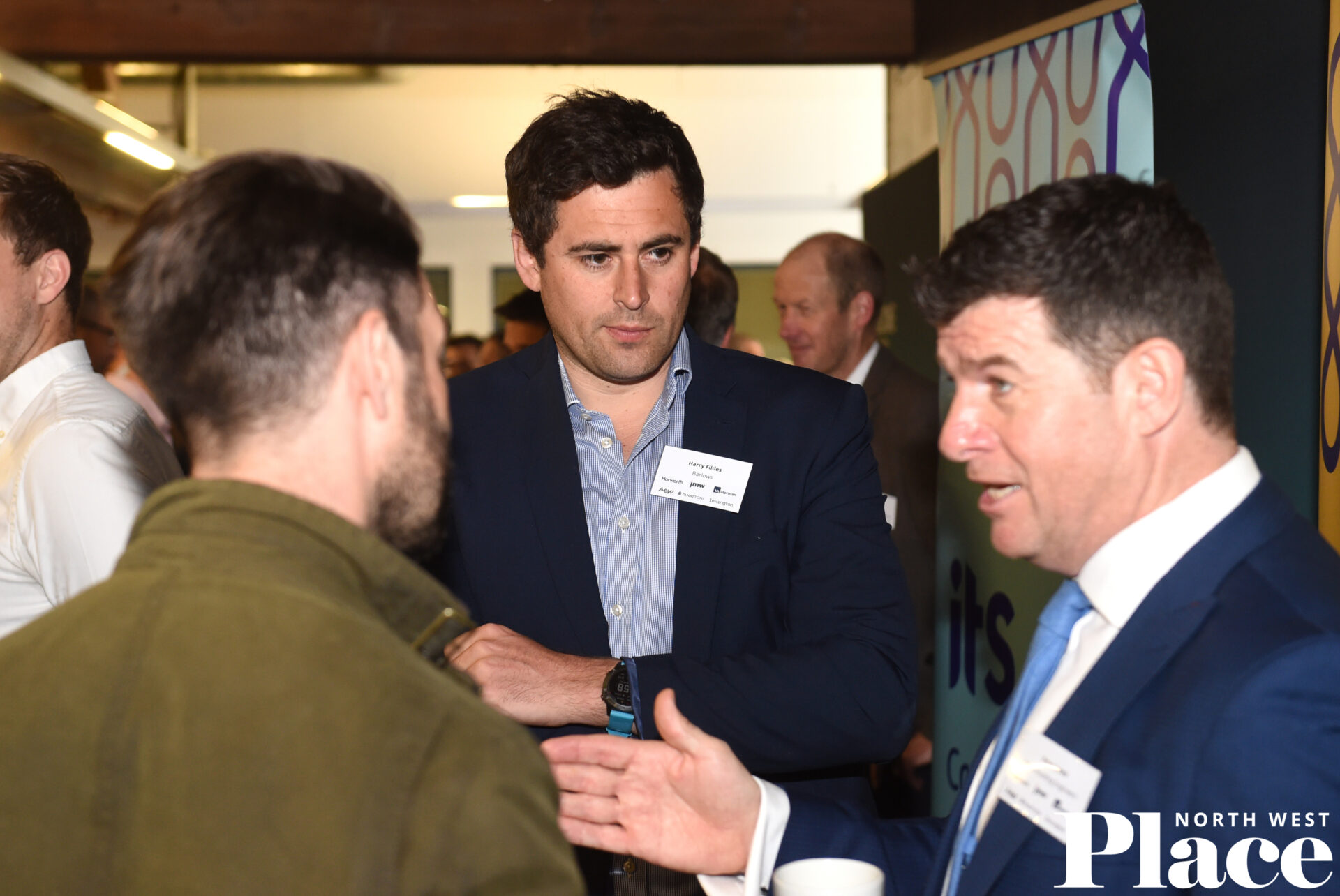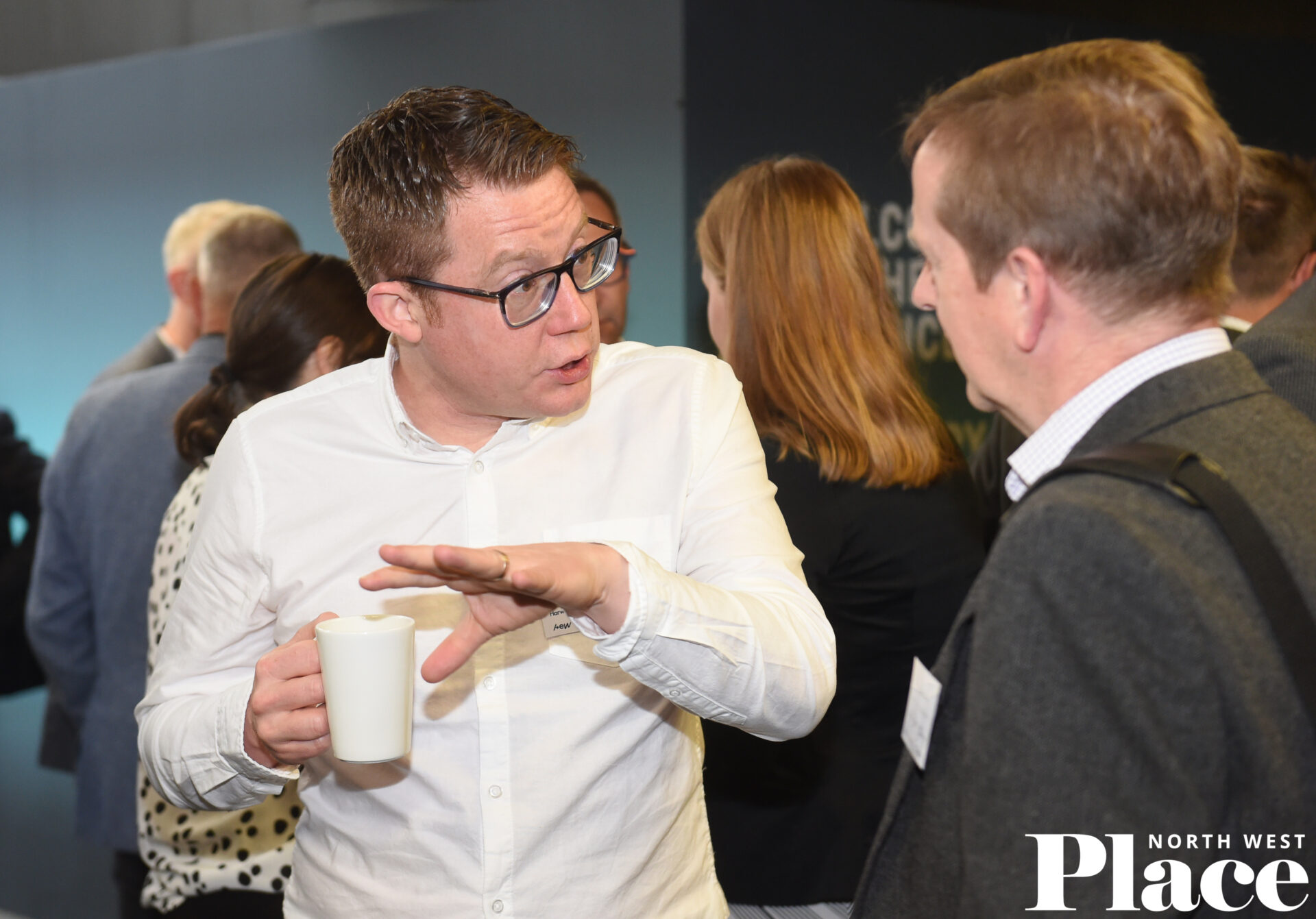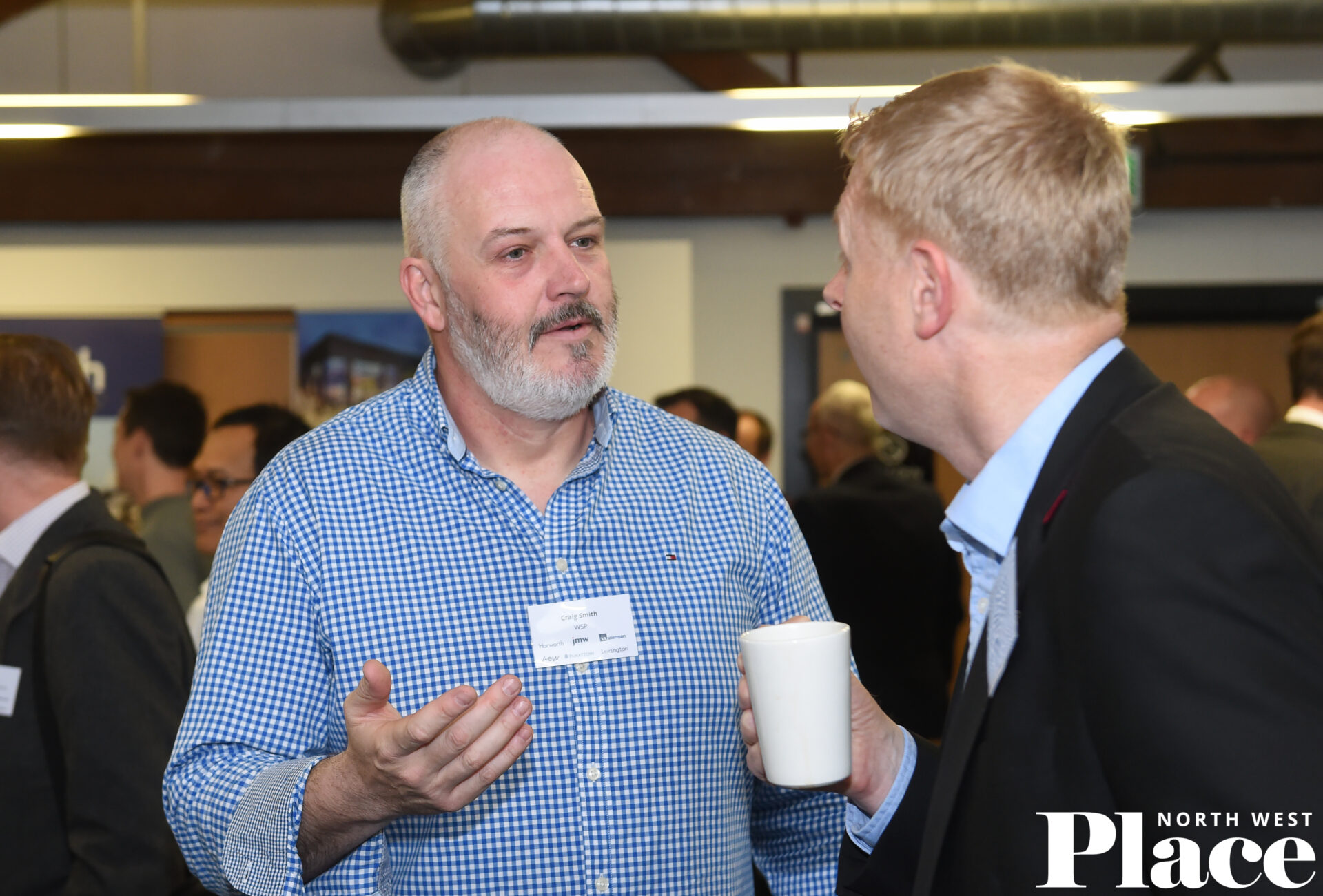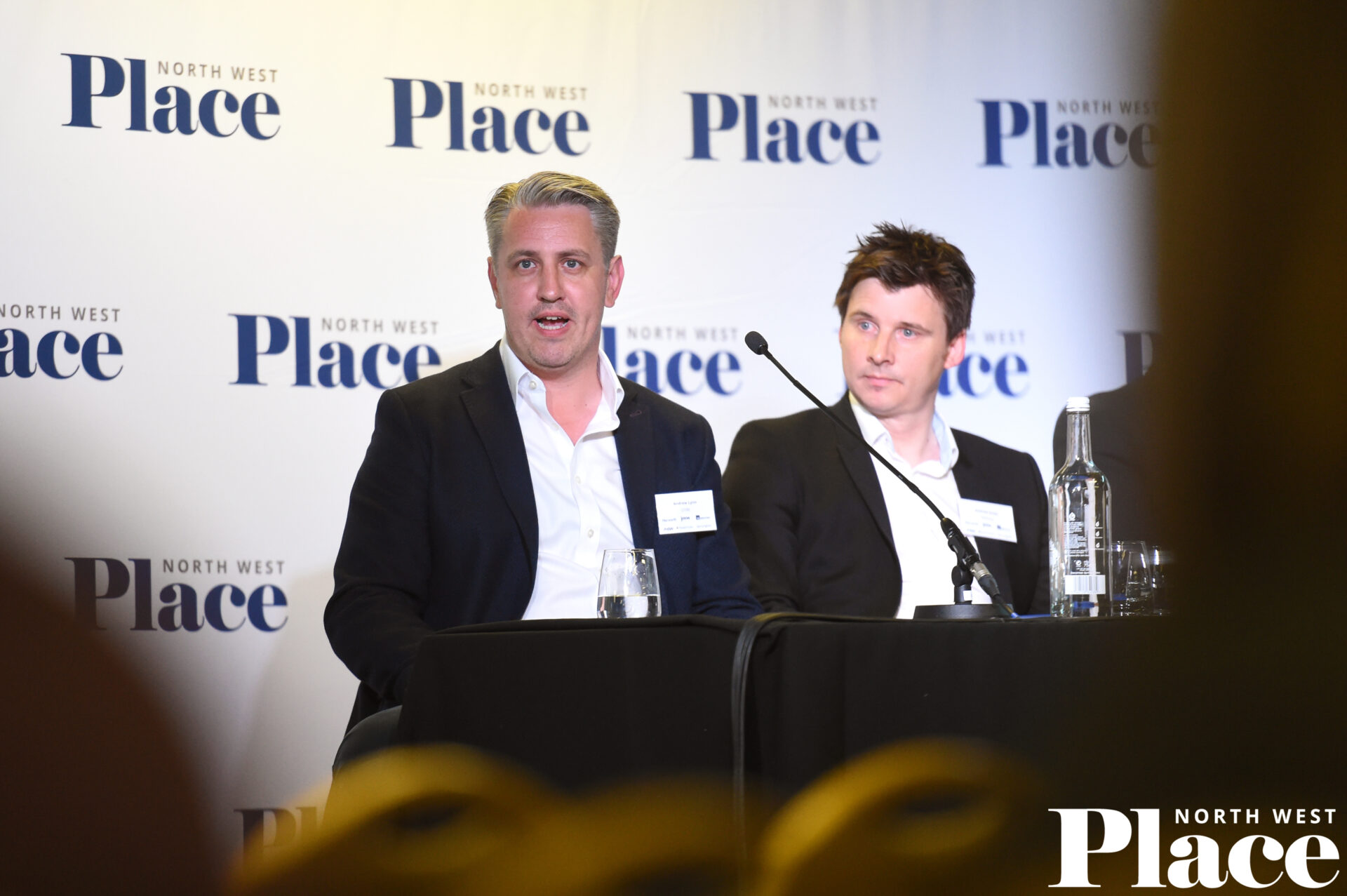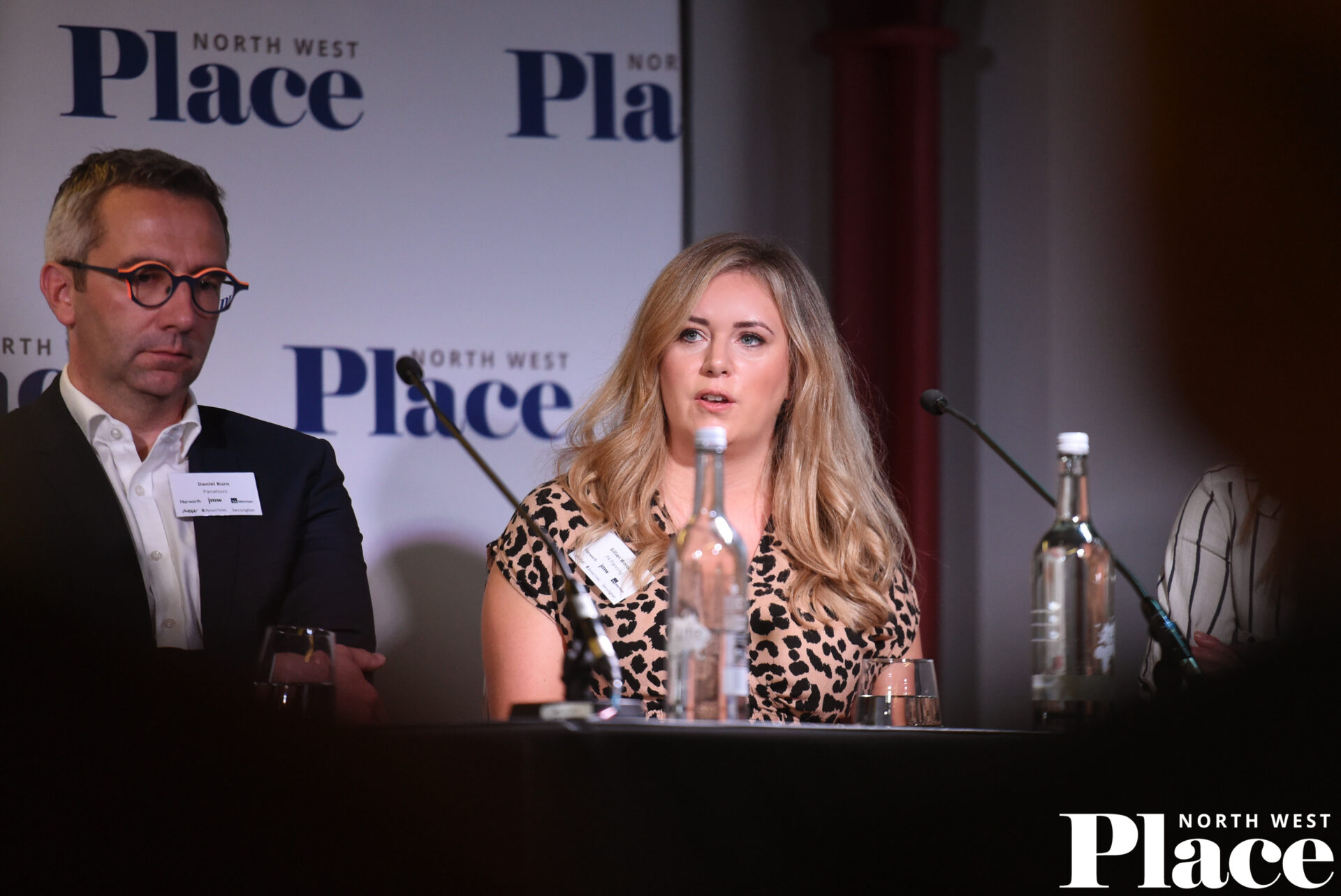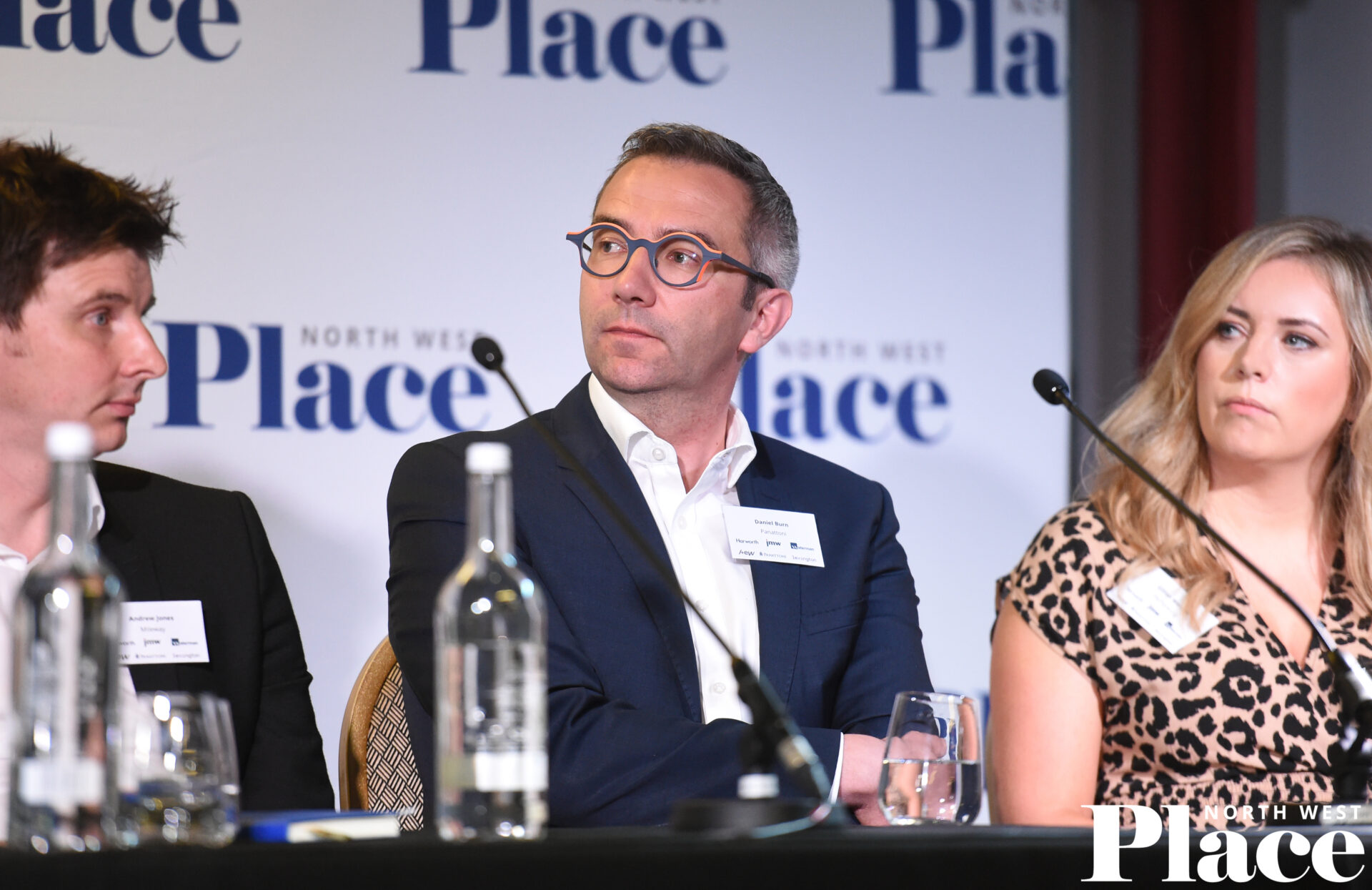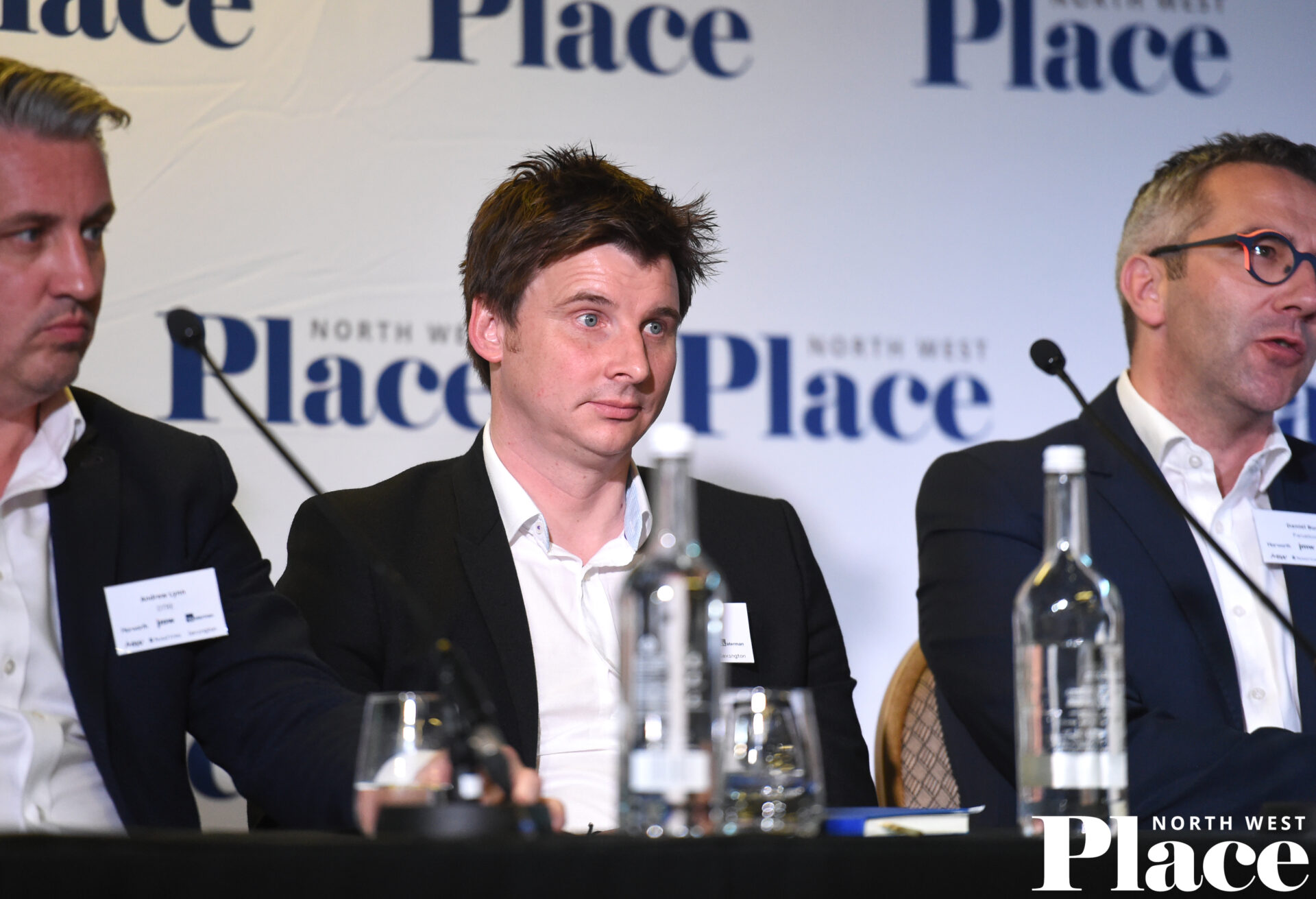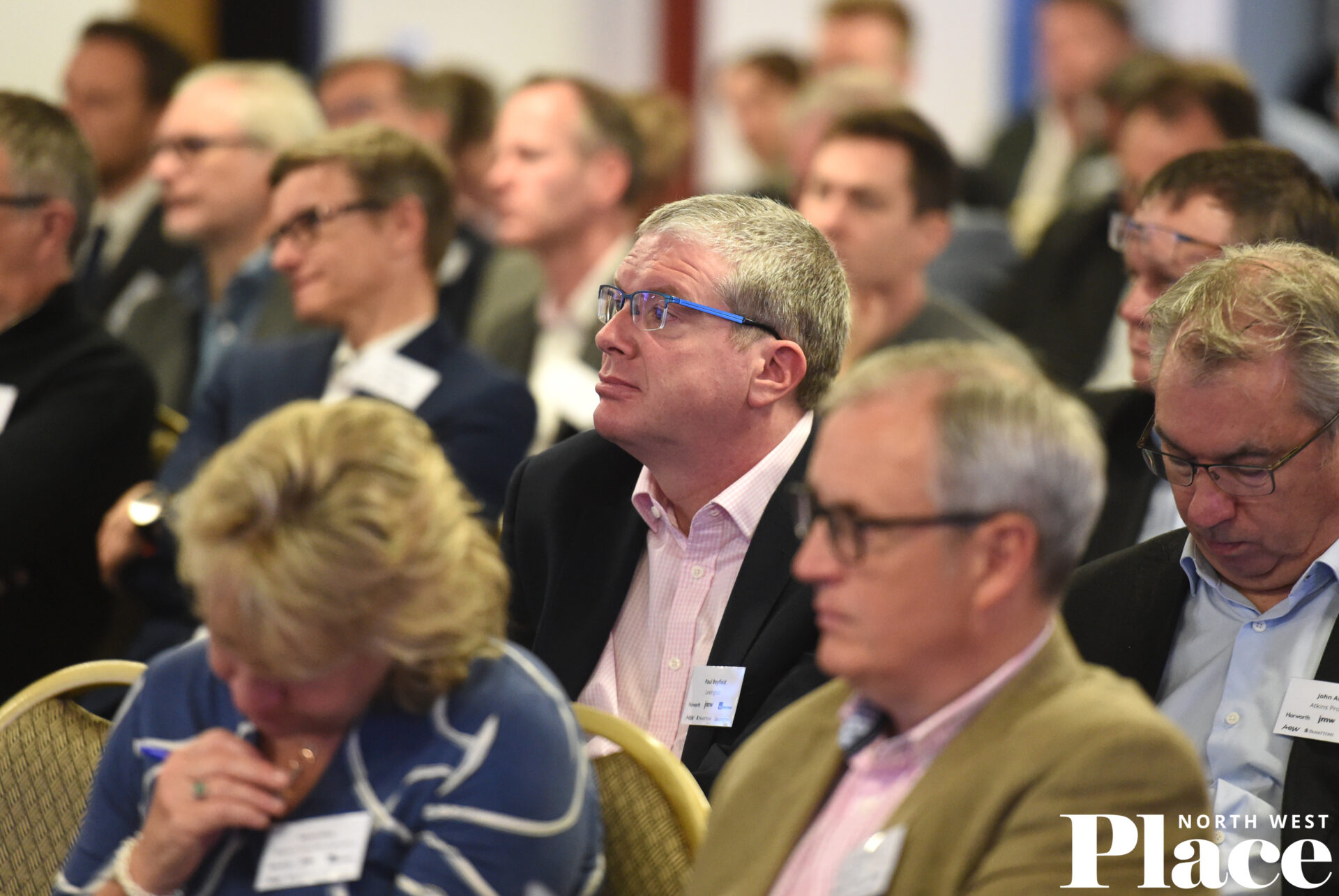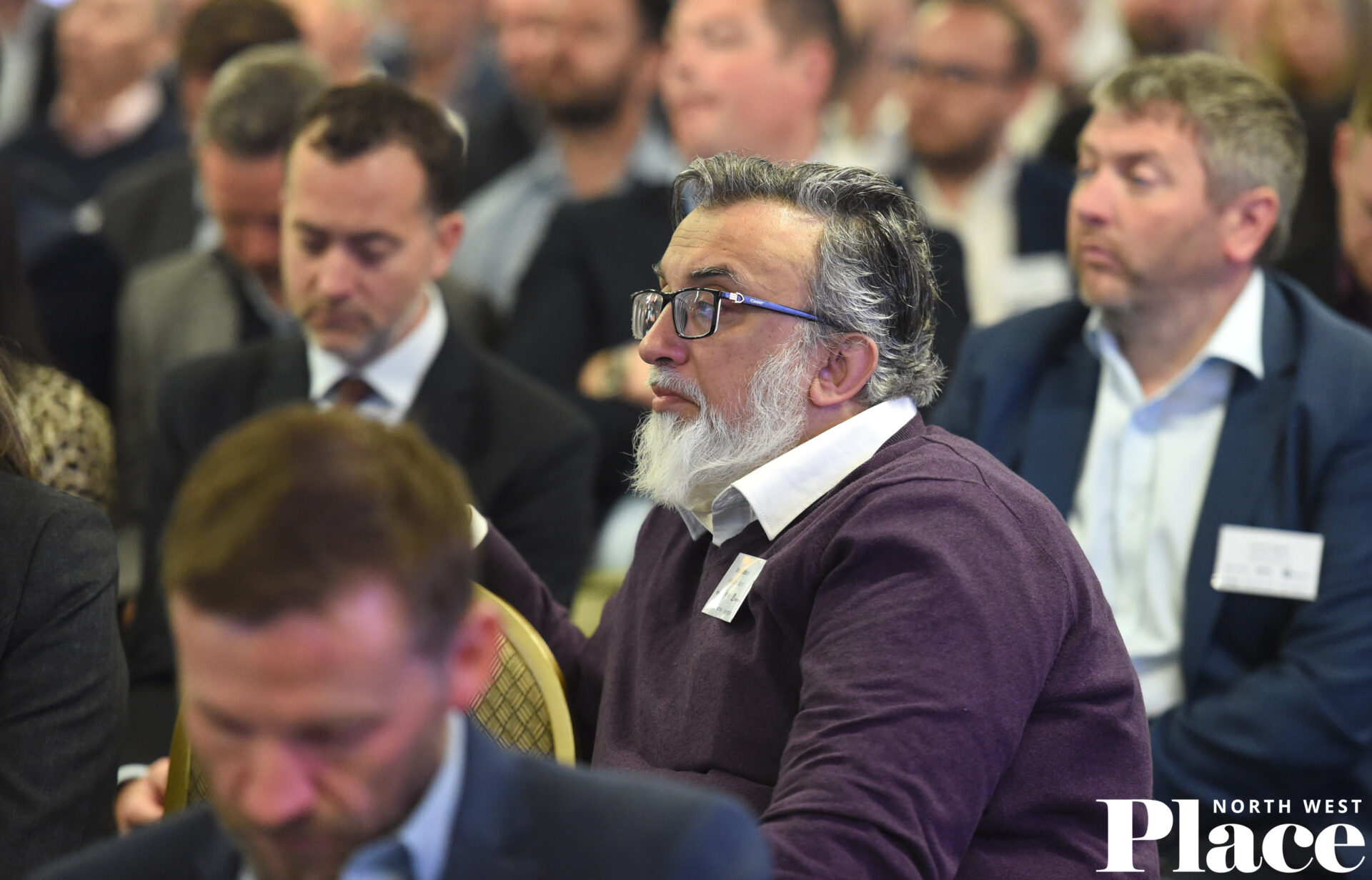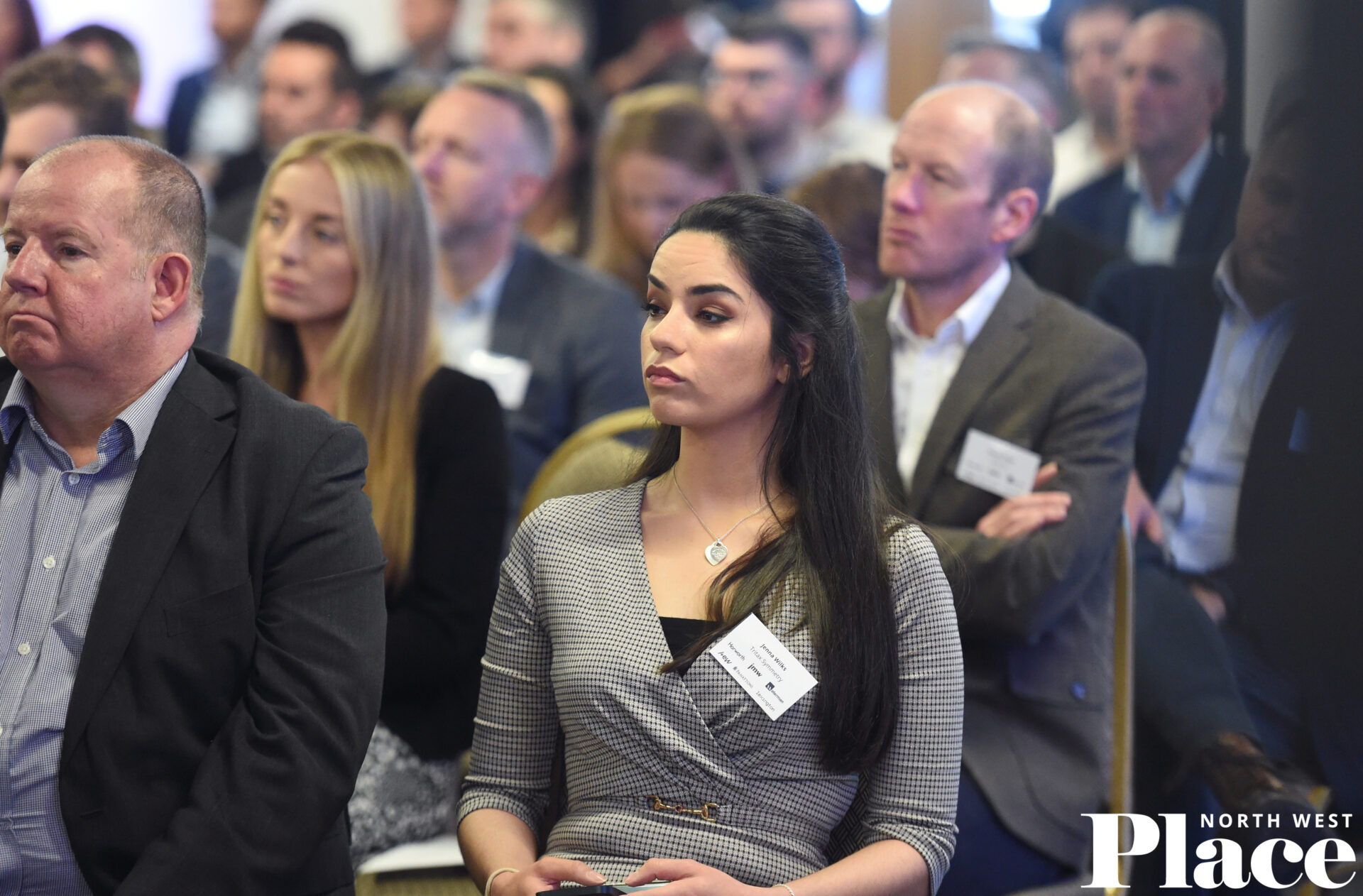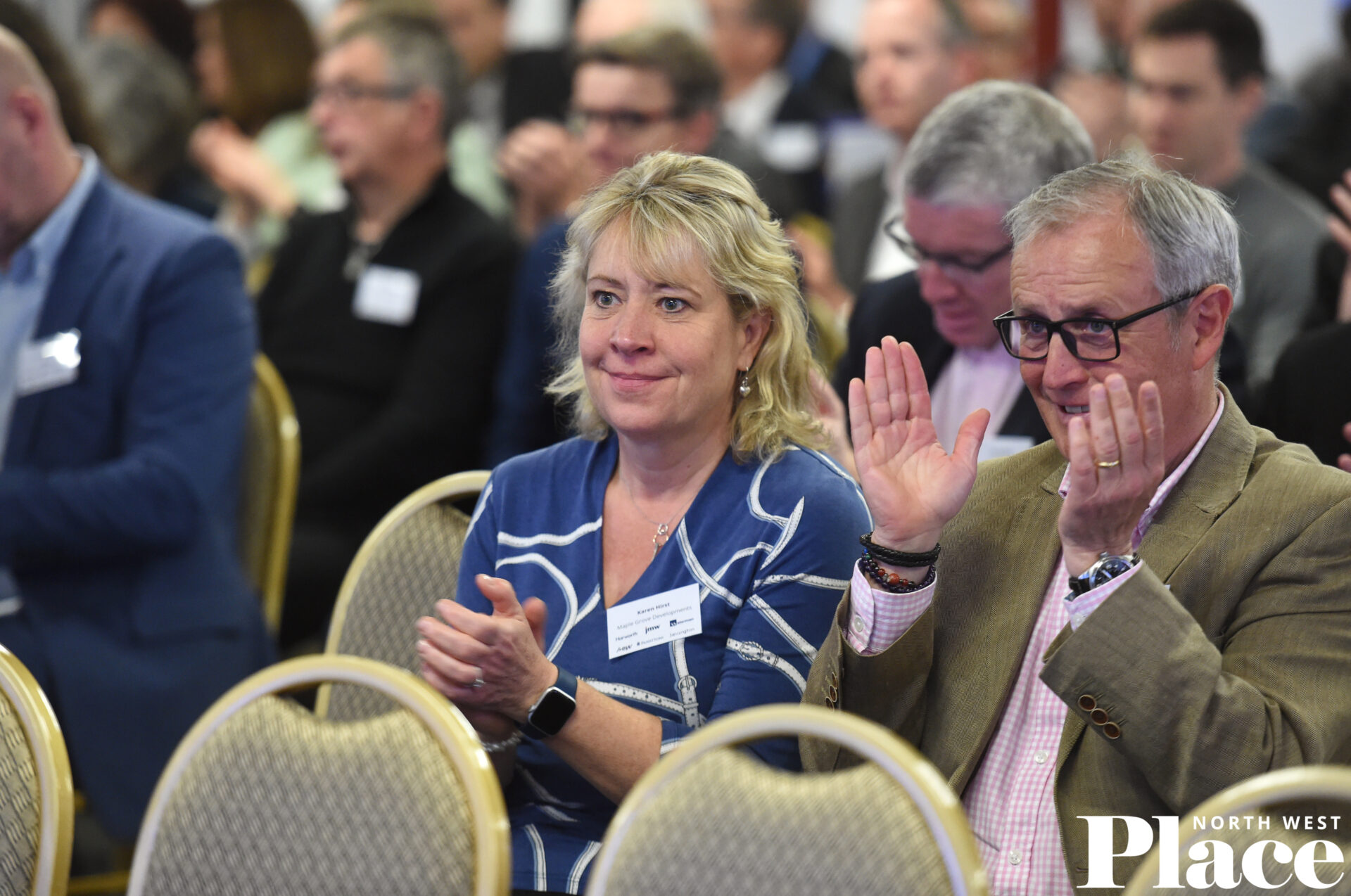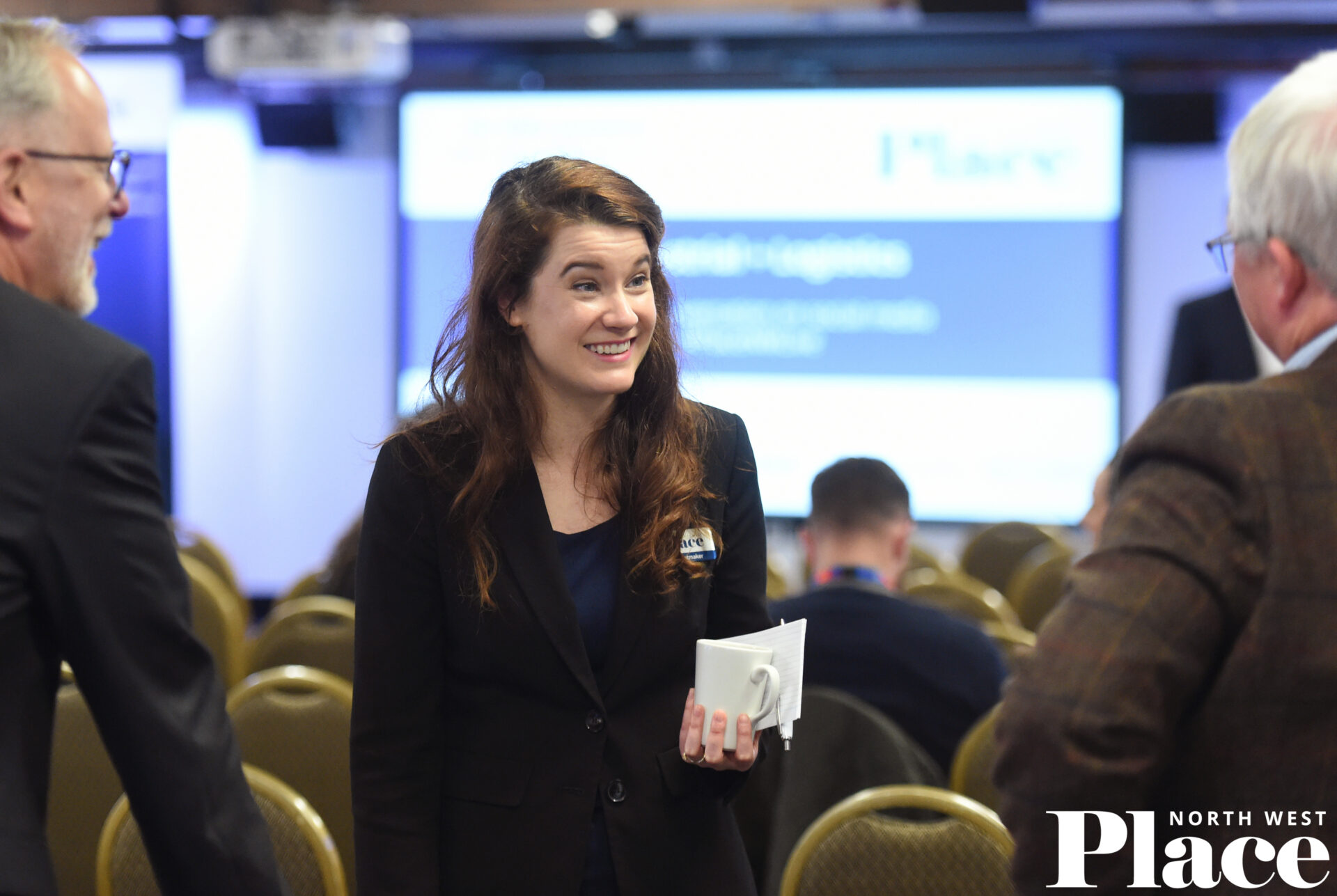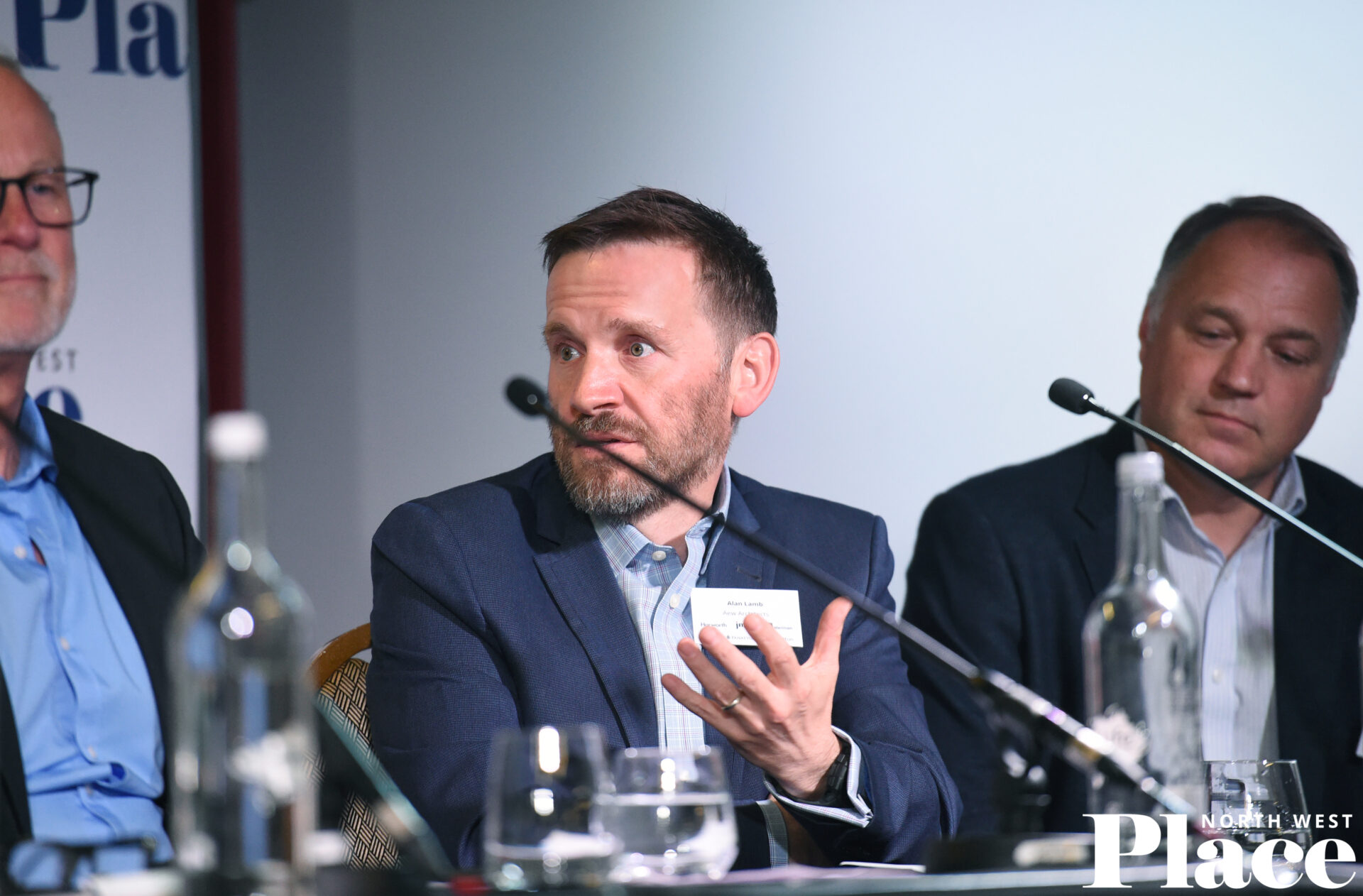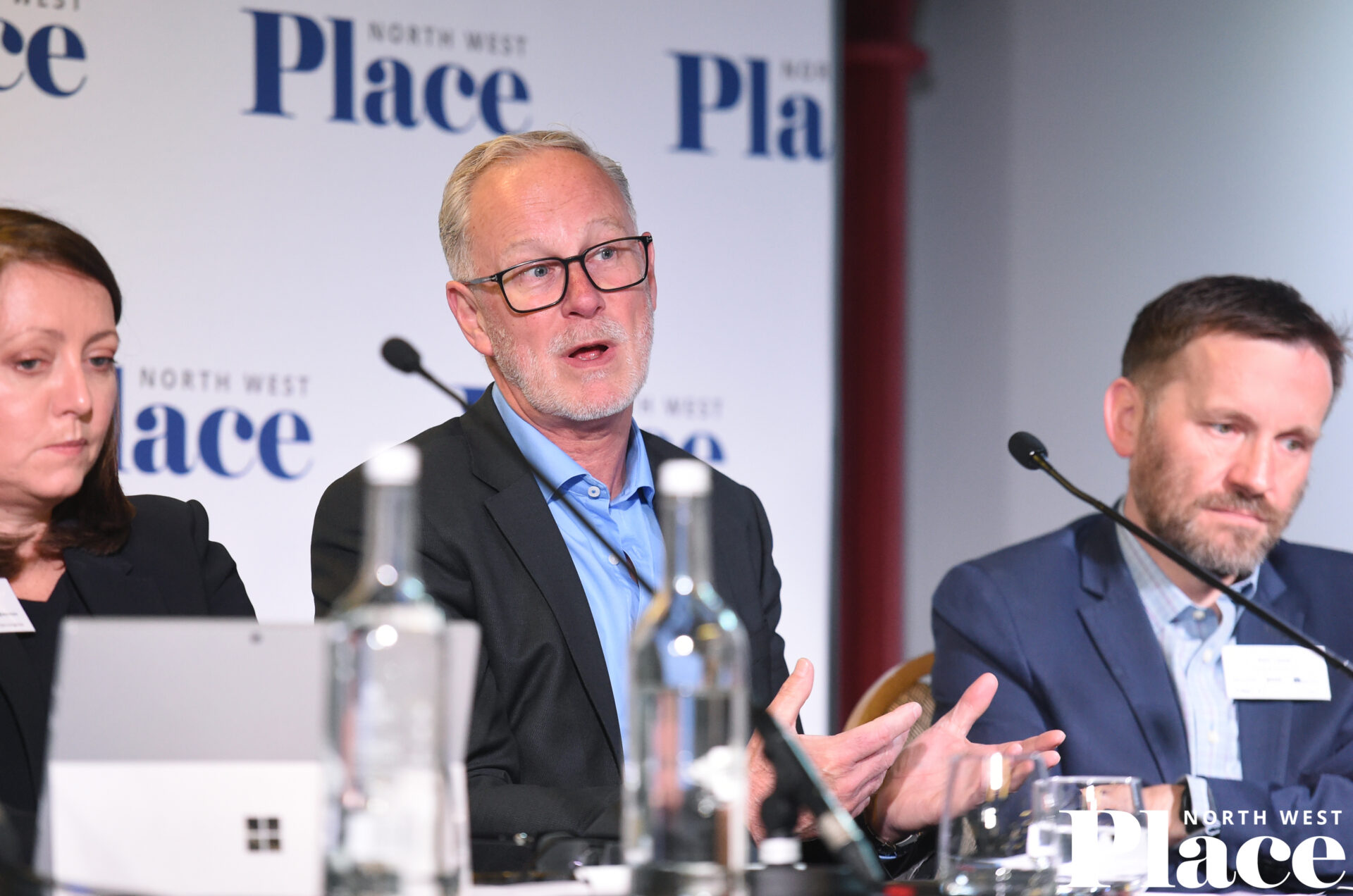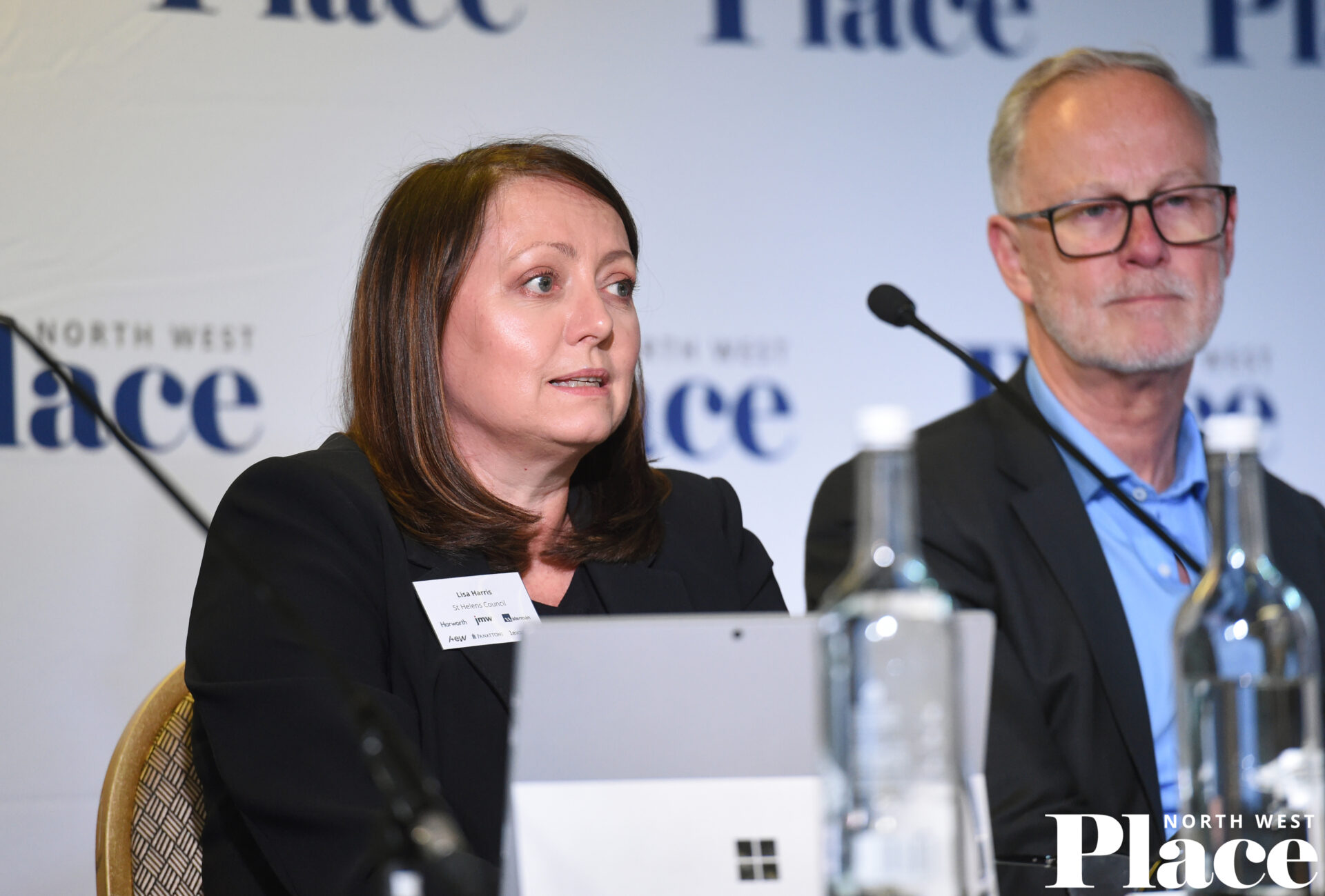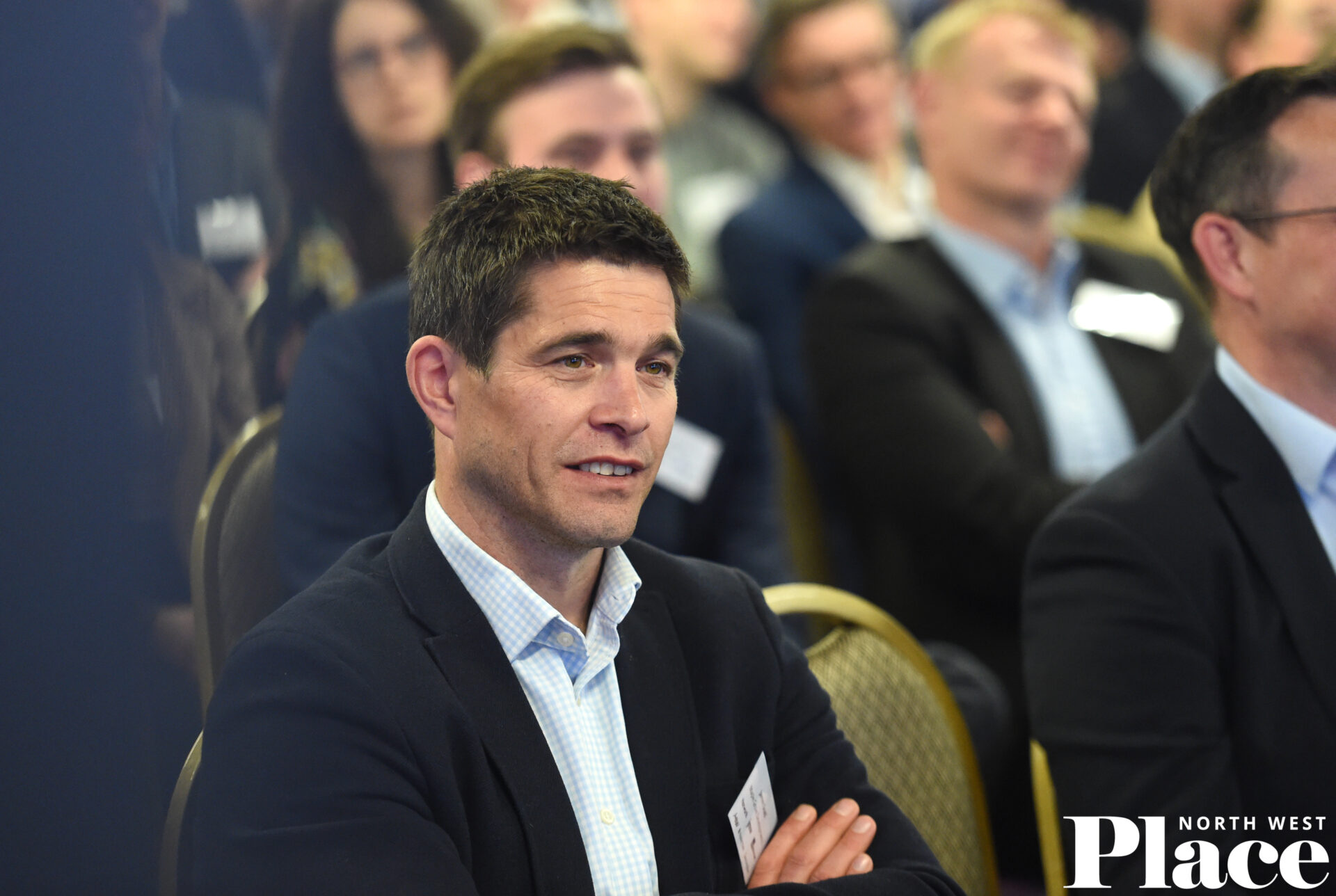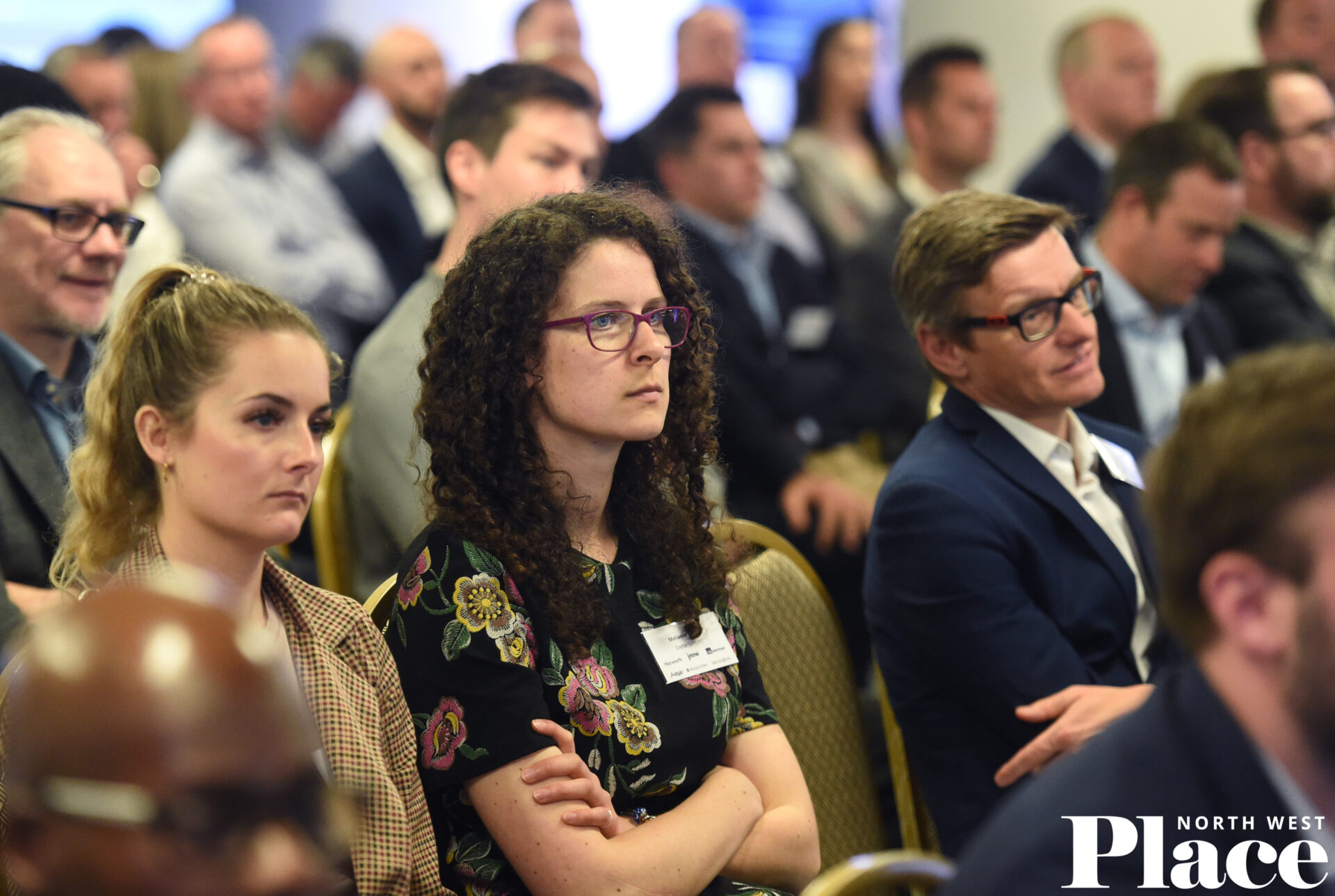Event Summary
Industrial + Logistics 2022 | Photos and summary
The successful industrial and logistics sector was the focus of Place North West’s latest conference in Manchester, which saw industry experts come together to weigh in on the future of the market.
Sponsored by Harworth, JMW, Waterman, Aew Architects, Panattoni and Lexington, Industrial + Logistics took place at the Science and Industry Museum. It was hosted by Julia Hatmaker, deputy editor of Place North West.
Scroll down to see photos from the event

Presentation – DTRE
Andrew Lynn, partner at DTRE, gave the first presentation. He began by taking a look at where the market is at, calling on his company’s newest research as evidence.
“[Industrial and logistics] continues to be the darling of the UK sector,” he said. “We are seeing records shattered. Things are pretty phenomenal in terms of take-up and end-users paying increased rents, but will this be sustained?
“In terms of the North West, there are pockets of development after a dearth of development in recent years.”
He went on to point out that Manchester is slightly behind London, Birmingham, and Northampton and Milton Keynes in the league table of hotspots.
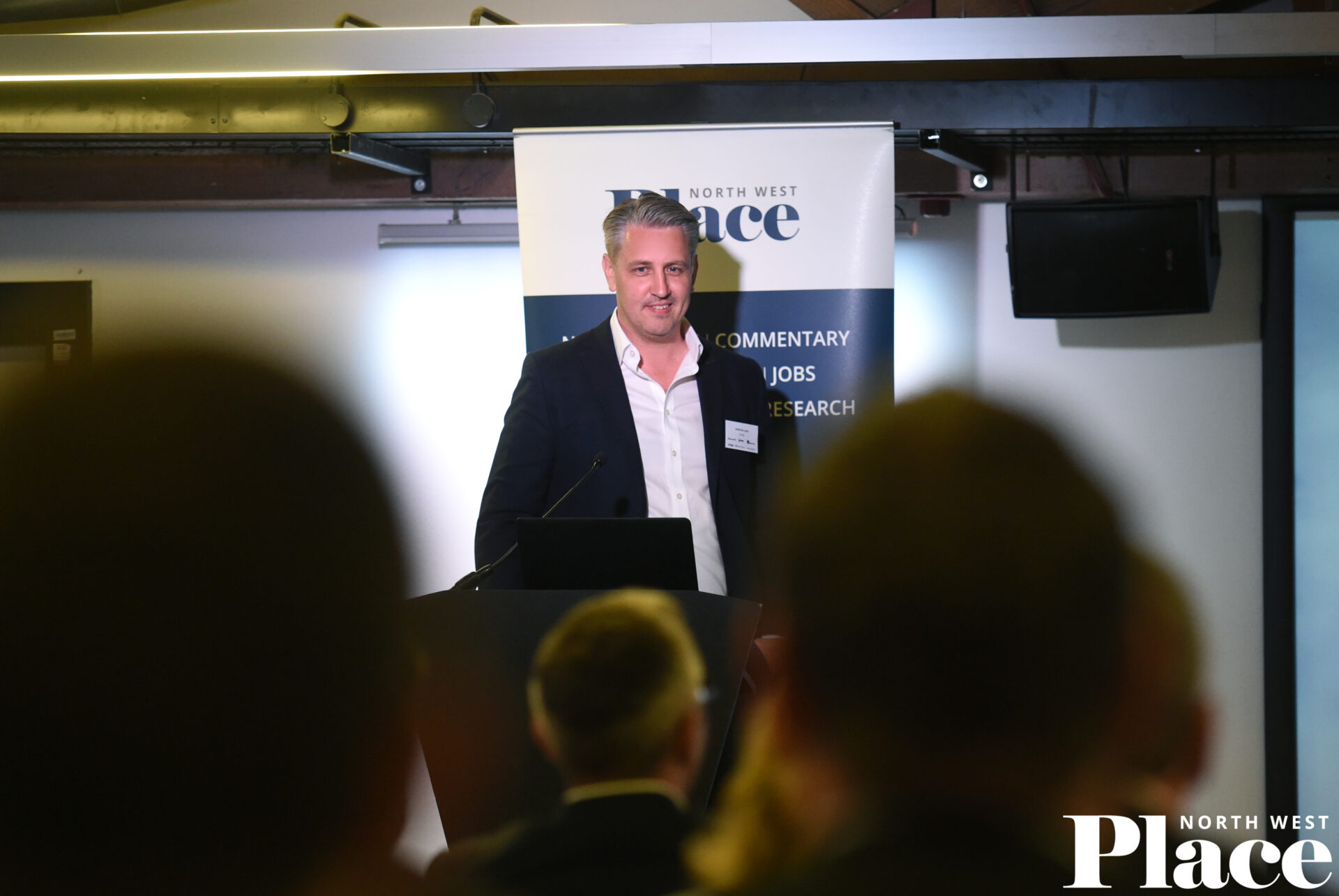
‘Controlling oven-ready land is key’ said Andrew Lynn. Credit: PNW
Lynn then focused on the new DTRE research which targeted those working at the forefront of the logistics sector.
Of the 300 respondents, 79% said the pandemic had a positive impact on their business, with 65% expecting to invest in space over 2022. 96% anticipated rents would rise, with just one person saying they would fall.
They were also asked to highlight any issues, and their top three challenges were common to other sectors – construction costs, availability of buildings and land supply. Of those who participated, 84% said their preferred location was Manchester, with 12% setting their sights on Warrington and 3% looking to Liverpool.
He concluded: “E-commerce, supply chain resilience – all these factors will continue to play positive roles going forward. Yes, economic factors such as inflation and interest rates will have an impact. They may be short term and we don’t believe will be significant. The overriding thing is development and controlling oven-ready land is key.”
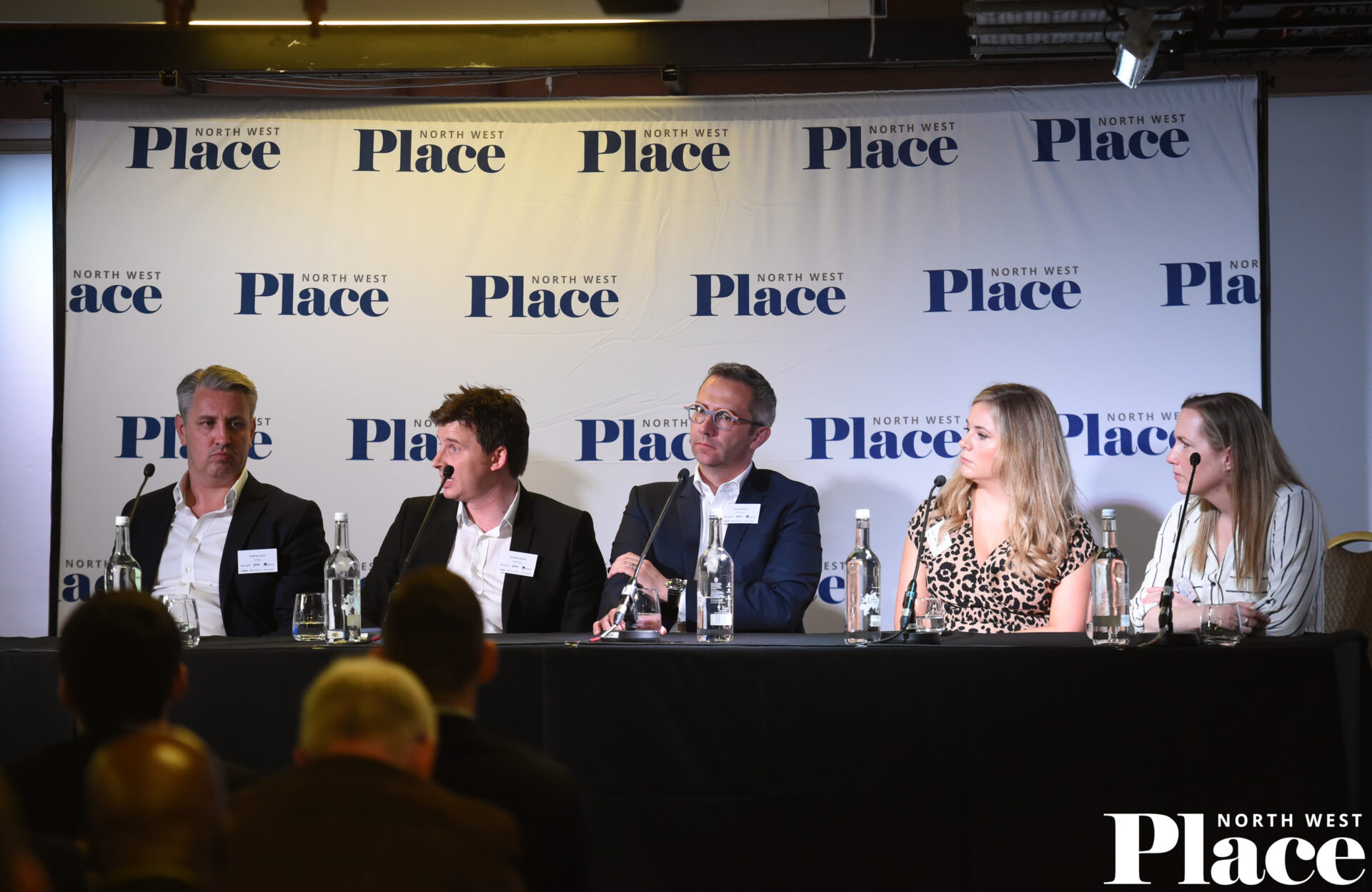
From left: DTRE’s Andrew Lynn, Mileway’s Andrew Jones, Panattoni’s Daniel Burn, P4 Planning’s Gillian Worden, and Peloton Real Estate’s Emily Speak. Credit: PNW
Panel One – State of the Market
- Daniel Burn, development director, Panattoni
- Andrew Lynn, partner, DTRE
- Emily Speak, director, Peloton Real Estate
- Gillian Worden, director, P4 Planning
- Andrew Jones, regional manager North West, Mileway
Conference chair Julia Hatmaker began the discussion by asking the panel how to make the North West a more attractive proposition.
Andrew Lynn said: “We have been hamstrung in terms of supply.”
Hatmaker then asked what companies were looking for. Emily Speak said there was a push towards businesses looking to work collaboratively, particularly on things like sustainability, with waste and energy production a priority, and landlords wanting their tenants to be greener.
Daniel Burn said some landlords had requested smart meters so they could measure occupiers’ consumption but added: “We’ve had quite a bit of pushback on that. Where does that sit with confidentiality and data protection? How do we know that information is not going to land on the laps of our competition?”
Staying with the environmental theme, Gillian Worden said councils were requesting lots of PV panels and vehicle charging points, and asking for large amounts of trees – though she thought they could often have more benefit if planted elsewhere.
The next discussion was around the levelling up bill – which brought a certain amount of scepticism from panellists.
Burn said: “I think it’s driven very much by politics. And I think we could potentially see another Northern Powerhouse soundbite that gets forgotten very quickly.”
Worden said she feared an infrastructure levy could affect development schemes “teetering on the edge of being viable”.
Lynn was quizzed on labour supply. He said: “We’re lucky in the North West. We’ve had, historically, a lot of manufacturing or high-skilled jobs, but with all these boxes getting bigger, is the labour [supply] there to satisfy this? Touching on the level of infrastructure and networks, all these things are issues for end-users. Can they get the staff and can they get them to their actual place of work?”
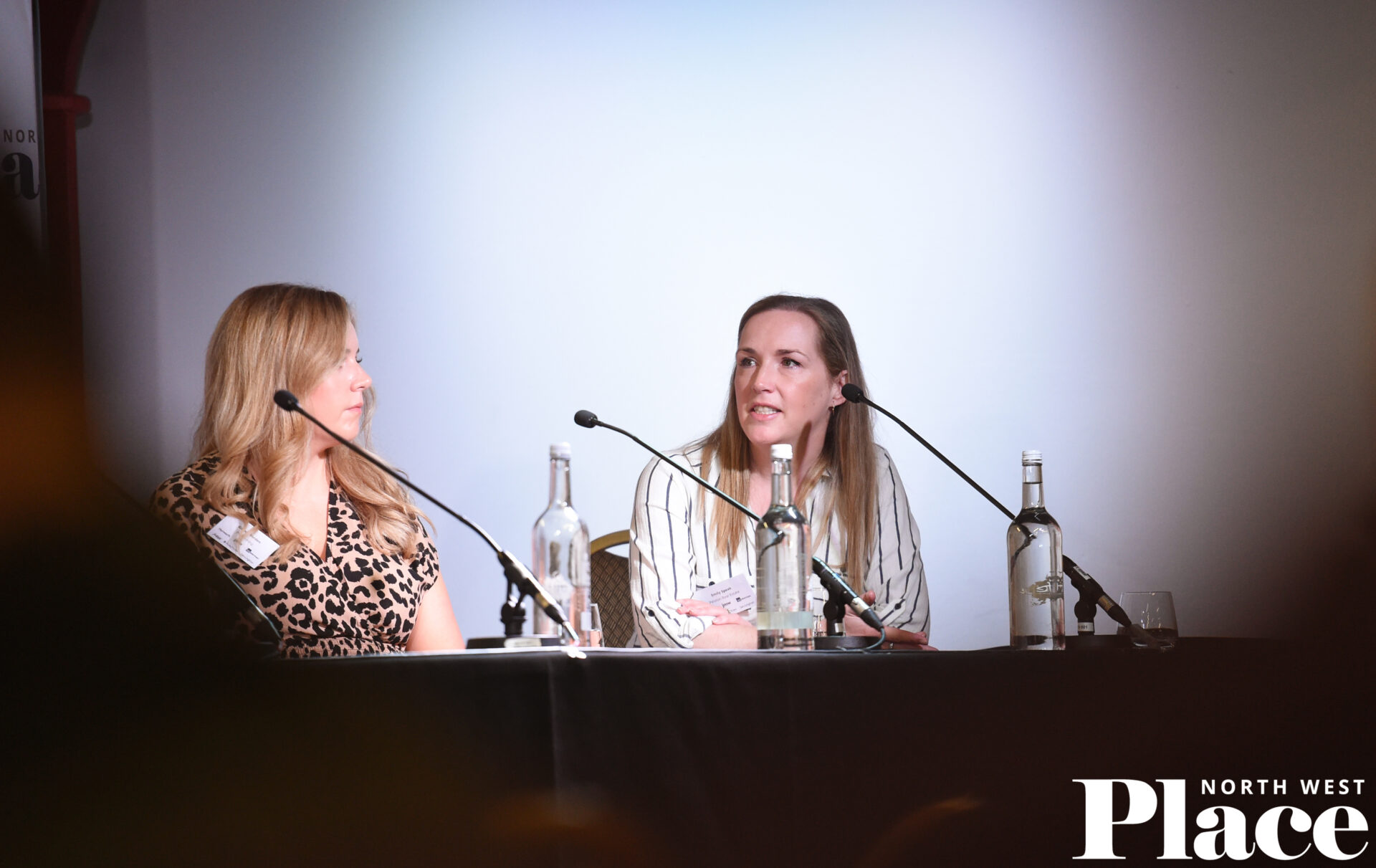
‘I think that the gap between new build and refurbished is definitely narrowing,’ said Emily Speak. Credit: PNW
On the subject of increasing rents, Andy Jones said the reason was twofold: “it’s the shortage of supply, driven by e-commerce.”
Speak talked about renovation projects: “We’re doing a lot of refurbishments at the moment and I think that the gap between new build and refurbished is definitely narrowing.”
And this led to a conversation about costs, with Burn saying the best solution was working very closely with an existing supply chain: “We are currently now no longer going out to tender. We are working with one contractor right from the start. We are securing steel, cladding, and concrete so that that falls within their programme, from the very first day that you get them involved.”
Hatmaker referred to the Levelling Up Bill and asked if planning changes were needed to help deliver logistics spaces. Worden said: “Yes. There’s so much red tape for planning. And I don’t see that changing in the short term, especially as the planning reforms have been taken out of the Queen’s Speech this week. I think there needs to be conversations with people working in the sector. And it needs to be done on a region-by-region basis, to make sure that there’s more flexibility to drive forward projects.”
Speak was positive in the face of talks of a recession. She said: “We’re not just limited to one type of occupier. We’ve got e-commerce, we’ve got gyms, we’ve got caterers, you know, we’ve got last-mile logistics. There’s demand from all of these sectors and more, reducing the lack of risk.”
Hatmaker asked if there was one trend in logistics the industry cannot ignore. Lynn had a bit of a list – automation and efficiencies, reducing waste and issues with labour supply – while Burn said he had concerns about China’s insistence on zero Covid and its effect on the supply chain, though the panel thought this could also be a benefit for manufacturing.
Worden said: “People are going to care more about where things are coming from, and are going to be looking at the green credentials of the businesses that they’re buying things from.”
Jones said: “For us as landlords, it’s the changes in sustainability. It’s having a huge impact on our appraisals, and we have to work with our existing tenants to try and improve the EPC ratings.”
One word repeated throughout the morning was e-commerce and Jones said: “That is all people are used to now. People will continue to shop online. When people talk about regenerating the high street, nobody talks about building a new shopping centre anymore. It’s all about leisure destinations, and cinemas and markets.”
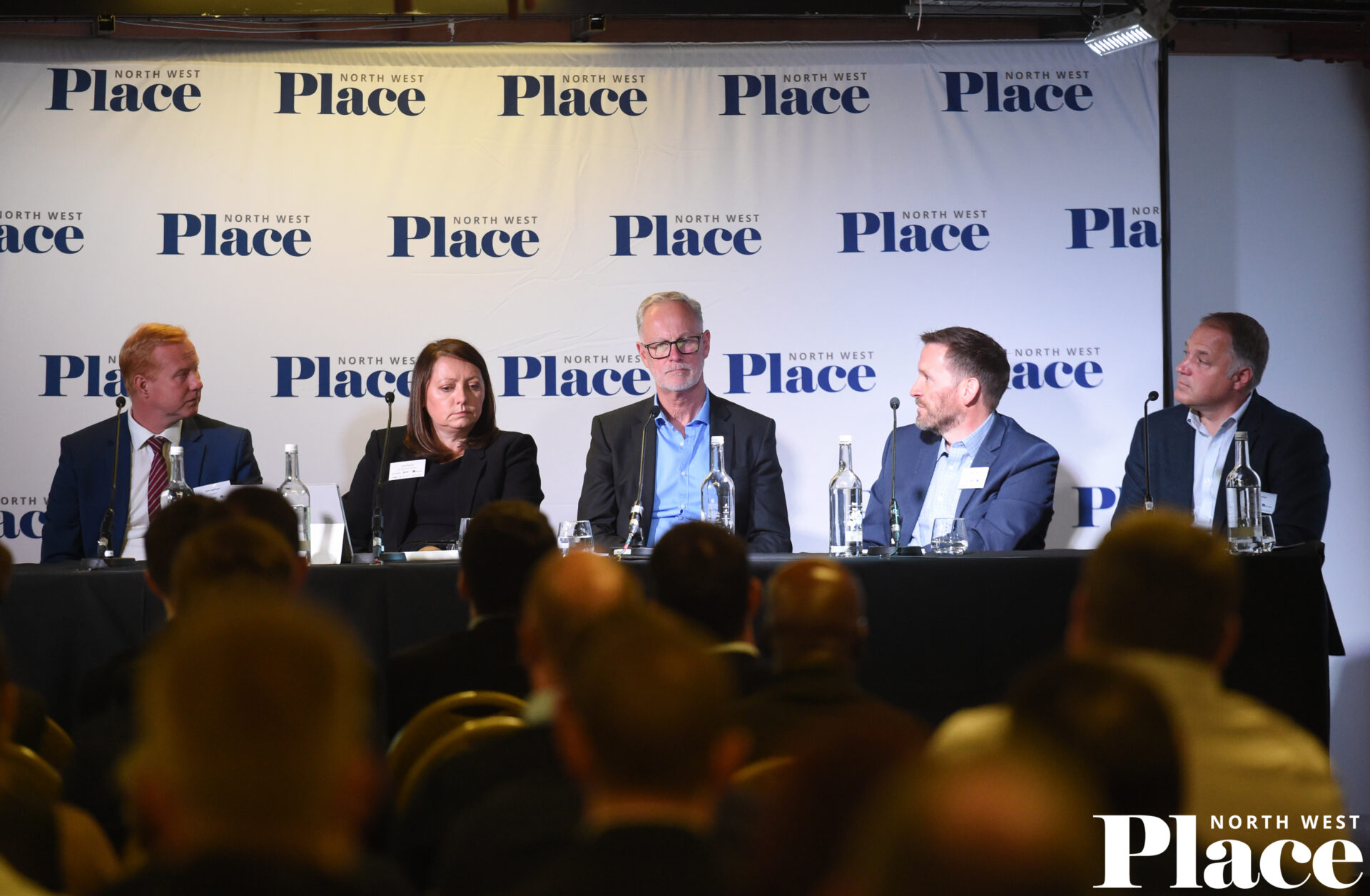
From left: Colliers’ John Sullivan, St Helen Council’s Lisa Harris, Rochdale Council’s Steve Rumbelow, Aew Architects’ Alan Lamb and Harworth’s Steven Knowles. Credit: PNW
Panel Two – Go Big or Go Home
- Steven Knowles, regional director, Harworth
- Lisa Harris, executive director place, St Helens Council
- Steve Rumbelow, chief executive, Rochdale Council
- John Sullivan, North West head of industrial & logistics, Colliers
- Alan Lamb, director, Aew Architects
Lisa Harris opened the discussion with an update on her council’s Parkside development where a former colliery site is being transformed into an employment park. She said: “It’s a fabulous opportunity and the £50 million link road is already on site.”
The frustrations of the planning process were also a hot topic. Steve Rumbelow said: “I think I’ve managed to create an environment where growth is recognised as important, and something that they should be helping to enable, and that’s because we know that our place can only be a better place if guys like [those at the conference] are investing in it and developing it.”
John Sullivan added: “If you’re looking for sites that can be delivered in the next two years, there’s probably only a handful of sites that can come forward. Occupiers want the deliverability so you’ve got to bring the land forward and work with them, because you’re just going to lose that investment and lose that job creation, and they may go to another region.”
Alan Lamb said: “The vast, vast majority of councils are pro-development, they are good at strategic planning. I’d lay the blame completely at the door of central government. They’ve apparently got rid of red tape over the last 12 years, well, nobody in this room says they’ve got less red tape than they had in 2010. Life is much more difficult. We’ve all got a site where the due diligence has been good, it’s a really robust submission, and it falls over because of politics, really kind of going against the greater good of what the borrower or the region needs.”
On the subject of central government call-ins, Harris added: “Parkside took an extortionate amount of time. We have to be open to challenge – the democratic process is that the public can challenge these things – but what’s clear is that there have to be the resources in place for that to happen quickly.”
Steven Knowles added: “For the developer, it means time and money; for the local authority it means jobs and the economy gets stalled.”
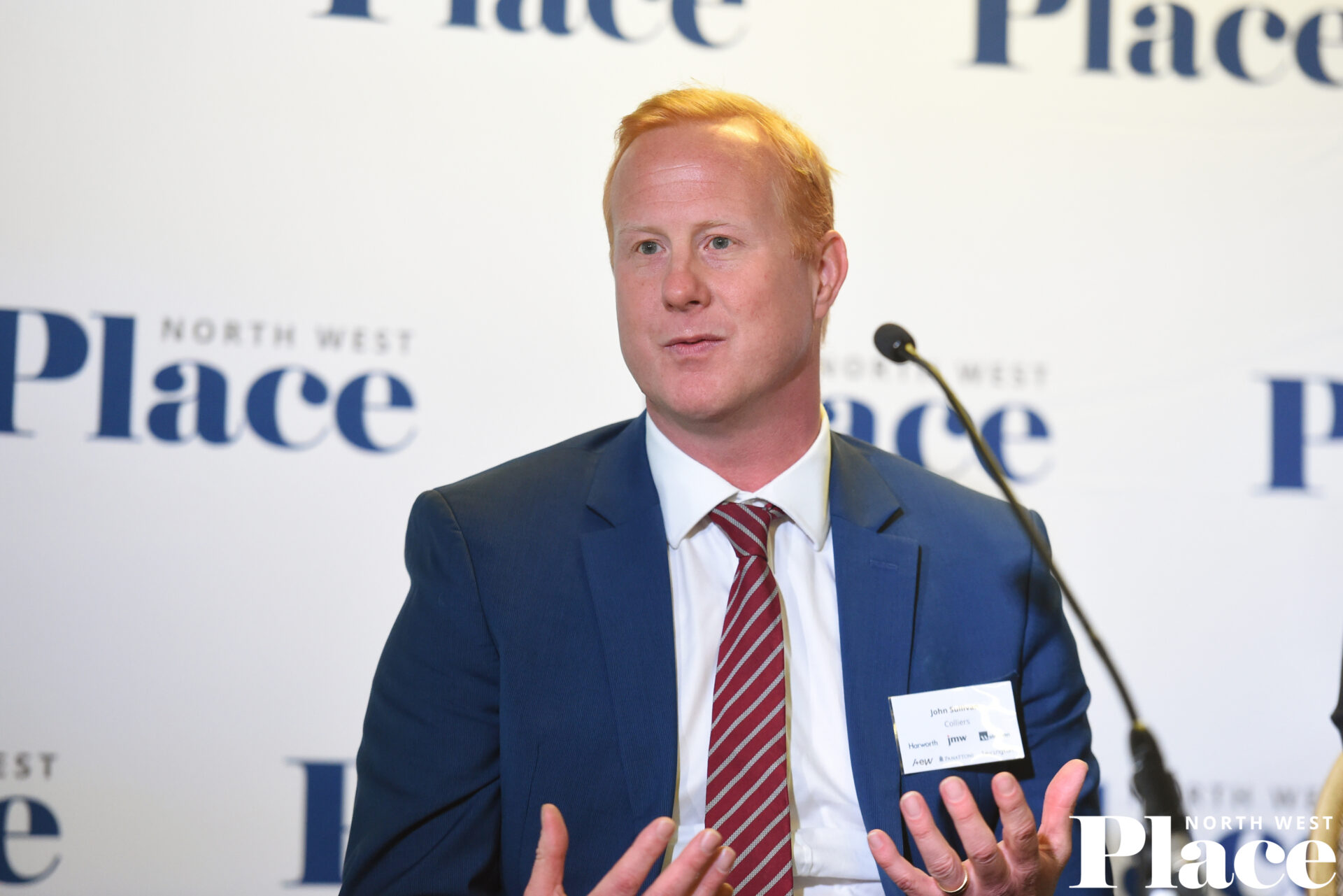
‘Occupiers want the deliverability so you’ve got to bring the land forward and work with them,’ said John Sullivan. Credit: PNW
Hatmaker asked what logistics developments would look like 15 years hence. Sullivan said: “I think as consumers we’re still going to want products quickly. The logistics market, the e-commerce operators, they’re going to have to innovate.”
Harris added: “It’s got to be about decarbonisation and very much about innovation. I think innovation is something we need to invest more in as a country.”
Rumbelow said: “There’s a massive retrofit agenda we will need to address.”
Lamb said: “It’s tall buildings, it’s buildings that are designed to be adaptable, it’s buildings that need to be sustainable and energy generating. Steve [Rumbelow] is absolutely right that we can’t build rubbish now that we need to retrofit in 15 years – we should be building something now that we’ll be tweaking in 15 years.”
Knowles developed this by saying: “It’s basically building places that businesses will want to be and people will want to work there. It is sustainability, place, health and wellbeing, fit for purpose, automation, enough power, local skilled labour and digital and data – having that connectivity into your schemes.”
The impact of logistics and industrial developments on communities was also touched on. Harris said: “I think that’s absolutely fundamental. We want to be able to shape the social benefits on a local level, through the supply chain, traineeships, apprenticeships, local jobs, local transport to those local jobs, and workforce and training.”
Knowles said: “ESG is very much at the top of our agenda and the ‘S’, which is social, is all about inclusive growth. It’s going to be even more important.”
Lamb added: “I think when we’re masterplanning it’s about doing that due diligence about how we can work with the characteristics of a site and a place, the amenity, the wellbeing of the occupants, the access to the site. It is getting much more embedded at day one.”
Environmental impact was also under discussion, particularly in building design and future-proofing, energy generation and specifics like battery storage. Knowles said: “The solar panel will be the roof in the next five years.”
And a subject the panel returned to repeatedly was connectivity and power – something which they wanted to see thought out on a region-by-region basis. Rumbelow said: “It varies from place to place and site to site. There is something to be done about the strategic planning of power supplies across the regions.”
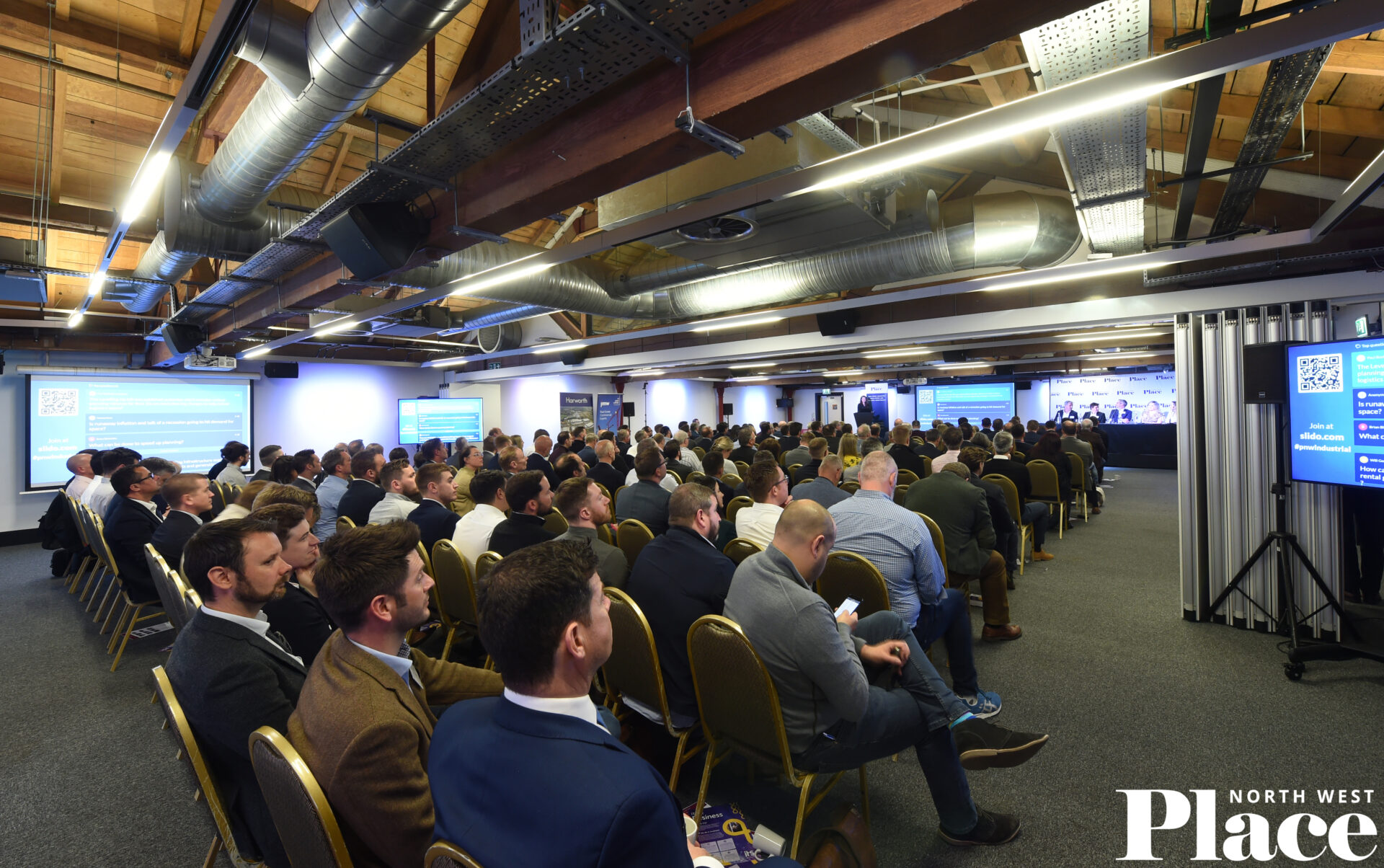
Nearly 200 industry professionals attended the Industrial + Logistics event. Credit: PNW
The next Place North West event is Futureproofing Connectivity Across the Liverpool City Region.
That event will be held on 16 June at Innside Liverpool. Free tickets for the in-person event are currently available.
Click any image to launch the gallery
Story by Suzanne Ellsworth for Place North West


